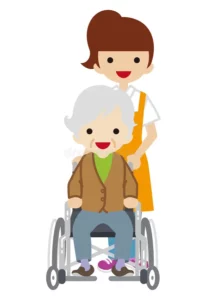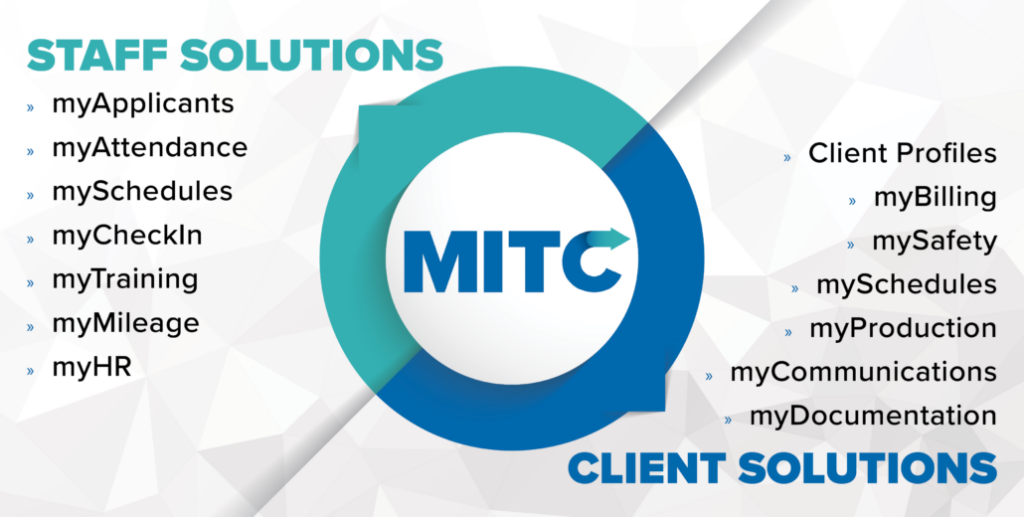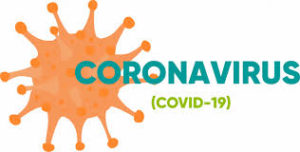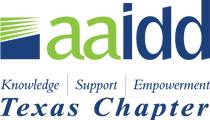Twogether Updates
In-Home ISS & EVV: Own Family Home Vs. Host Home & Group Home
January 4th, 2024
Clarification Concerning EVV:
In-home ISS requires EVV only for individuals that have an IPC location of own home/ family home. Host home and group homes do not require EVV for anything.
HCS Certification Standards Webinars & Recordings
January 2nd, 2023
New Rules
Certification Standards Modules
HCS/TxHmL Certification Standards Modules
Anyone new to the HCS waiver program should watch these modules! This is especially true for both new and current HCS case managers, nurses or program managers to watch these modules/recorded webinars. They are based on the new HCS Rules: Texas Administrative Code (TAC) Title 26 Part I Ch 565.
These were previously known as certification principles, now these are certification standards and the TAC moved to Ch 565 (Subchapters A-F).
June 14th, 2023
(No longer current)
In case you have not seen the answers to some of the unanswered questions at the time of the Certification Principles series recorded in 2021, please note you can find those at the Q&A doc below.
HCS/TxHmL Certification Principles Webinar Series Participant Q&A
FYI Current as of 9/22/21*
August 12th, 2021
HCS/TxHmL Certification Principles Interpretive Guidance Series
Starting August 12, 2021, the HCS/ TxHmL Joint Training Program began presenting a series of nine webinars designed to provide interpretive guidance on the HCS and TxHmL Principles of Certification, as outlined in the Texas Administrative Code.
You may click on the links to previously recorded trainings below to watch any of the nine sessions on Certification Principles from the Texas Administrative Codes.
Certification Principle Trainings
These modules are designed to provide interpretive guidance on the certification principles found in TAC Title 40, Part 1, chapter 9.
E-mail LTCR Joint Training for a transcript of any of the recordings below.
ISS In-Home Attendant Base Wage Rate Requirement Clarification
January 1st, 2024
ISS in-Home Attendant Base Wage Rate Requirement
Clarification:
There seems to be a lack of clarification in the HCS program concerning if the ISS base wage rate requirement applies to “in-home ISS”. It does apply to in-home ISS. It would seem that most likely a significant number of providers are not aware the base wage requirement applies to in-home individualized skills and socialization (ISS) and that they are currently out of compliance. That is because the rule applies to “individualized skills and socialization” not clarifying if it applies to all or a portion of the services that fall under that umbrella. Because in-home ISS has significant differences from facility-based and off-site ISS (e.g., in-home ISS does not require a license, typically only applies to one person, may only be delivered in a person’s own home, and the rate issue we have already discussed), providers have assumed the base wage requirement only applies to licensed services.
HHSC states: “The application of the minimum wage for direct care staff providing ISS was adopted in the Texas Administrative Code rules that were promulgated to incorporate the wage increase appropriated by the Texas Legislature. Historically, Day Habilitation did apply a minimum wage requirement for staff providing services to individuals in some waiver programs, but not all waiver programs; consistent with the legislative approach that the minimum wage be uniform across all programs, we also adopted in the TAC the requirement that the minimum wage be paid consistently across all services and waivers.”
Cost Reporting Update!
This notice applies to ICF/IID, HCS, TxHmL, CLASS and DBMD providers.
HHSC Notice:
The Texas Health and Human Services Commission (HHSC) has published Information Letter (IL) 2023-44 regarding the 2023 Cost Report and 2023 or 2024 Accountability Report Training Information.
Information on cost and accountability report training can be found on the Provider Finance web page.
Email PFD LTSS or call (737) 867-7817 with any questions.
E-Health Advisory Committee Applications Due Jan. 8
December 15th, 2023
If you’re interested in health information technology, health information exchange systems, telemedicine, telehealth and home telemonitoring services issues, you may want to apply to be a member of the e-Health Advisory Committee.
But act quickly as applications are due Jan. 8.
Click here to learn more and apply.
Implementation of the Personal Needs Allowance (PNA) Adjustment
December 1st, 2023
ICF/IID Providers:
Implementation of the Personal Needs Allowance (PNA) Adjustment
As required by House Bill 54 (88th Legislature, Regular Session, 2023), the Health and Human Services Commission (HHSC) is directed to increase the minimum monthly personal needs allowance (PNA) for Medicaid beneficiaries of a nursing facility (NF) or related institution licensed under Chapter 242, Health and Safety Code, assisted living facility, intermediate care facility for individuals with an intellectual disability or related condition (ICF/IID), or other similar long-term care facility who receives medical assistance. The monthly PNA would increase from $60 to $75 for a person and from $120 to $150 for a couple.
The increase in the minimum PNA requires the Centers for Medicare & Medicaid Services (CMS) approval of a Medicaid State Plan Amendment (SPA). Subject to CMS approval, HHSC anticipates the increase in the PNA will be effective Jan. 1, 2024.
HHSC will publish a Provider Information Letter with more detaied later.
Email ICF/IID with any ICF/IID questions.
Employment First Assessment Tool & Rules (HCS/TxHmL/CLASS/DBMD)
December 1st, 2023
As of Nov. 14, 2023, service coordinators and case managers in the CLASS, DBMD, HCS, TxHmL waiver programs and STAR+PLUS Home and Community-Based Services (HCBS) must use the Employment First Discovery Tool as part of the service planning process to explore an individual’s desire to work.
Review IL 2023-41 Employment First Discovery Tool for more information.
Be sure to sign up for :
Employment First Discover Tool Webinar
Jan. 10, 2024
10–11 a.m.
Register here to attend the webinar.
Email questions to John Huffine.
November 13th, 2023

HHSC publishes a newly, updated Employment First Discovery Tool (Form 8401) and accompanying instructions based on the rule implementation related to Senate Bill 50, 87th Legislature, Regular Session, 2021. Effective November 14, 2023, use of the tool is required to ensure that individuals who want to work receive employment services from the Texas Workforce Commission (TWC) or through the Medicaid waiver program in which the individual is enrolled.
Impacted programs:
- Community Living Assistance and Support Services (CLASS)
- Deaf-Blind with Multiple Disabilities (DBMD) programs
- Home and Community-Based Services (HCS)
- Texas Home Living (TxHmL)
- STAR+PLUS Home and Community-Based Services (HCBS)
HHSC has published IL 2023-41 Employment First Discovery Tool. Beginning on November 14, 2023, service coordinators and case managers in the CLASS, DBMD, HCS, TxHmL waiver programs, and STAR+PLUS Home and Community-Based Services (HCBS) must use the Employment First Discovery Tool as part of the service planning process to explore an individual’s desire to work.
The tool with instructions is located under the Forms section on the respective program areas HHSC webpage.
June 5th, 2023
IL 2023-22
Employment First Assessment Tool: Proposed Rules
Home and Community-Based Services (HCS) and Texas Home Living (TxHmL) – During the completion of the Service Coordination Assessment (Form 8647), the service coordinator asks the person about their desire to work. Document the person’s response on Form 8647.
If the individual indicates a desire to work, the service coordinator must complete the Employment First Uniform Assessment and make a referral to Texas Workforce Commission or refer the person for employment services through the waiver program where the person is enrolled.
Employment First Uniform Assessment Form 8401
Dr. Ollie Seay Knowledge Award For Excellence In Education or Research
November 25th, 2023

I am happy to announce that I was presented with the Dr. Ollie Seay Knowledge Award For Excellence In Education or Research. I was so honored to receive this award especially since I first met Dr. Seay when I first started working with IDD services at Austin Travis County MHMR (Now Austin Integral Care) in 1992 when she was head of the psychology department at our offices. We lost Dr. Seay earlier this year and she will be missed by all who knew her, especially for her many years with the Texas chapter of AAIDD and for her time teaching at Texas State.
Julie Andrews Blacklock
Family Caregivers: HHSC Offers Webinars
November 12th, 2023

Texas HHS Aging Services Coordinationor will be presenting a webinar series during National Family Caregivers Month in November.
This webinar series is for caregivers, people who work with caregivers and anyone interested in caregiving.
November Caregiver Webinar Series
November 15, noon-1 p.m.
Cultivating Community and Support for the Lifespan: Caregiving for Children with Disabilities
Register here.
November 29, noon-1 p.m.
Overview of supports for caregivers and care recipients
Register here.
Contact
For more information visit the HHS website or email the Age Well Live Well inbox.
From Our Friends at IntellectAbility: Clinical Pearls in IDD Healthcare that are Important Knowledge for DSPs
November 11th, 2023
I thought this was a great article for providers and their DSP’s. Please feel free to check out their other articles and resources and their training on person-centered practices!

EVV HAAeXchange Townhall Meeting
November 11th, 2023
The Texas Health and Human Services Commission (HHSC), Texas Medicaid & Healthcare Partnership (TMHP), and HHAeXchange will have one last Town Hall webinar for all Electronic Visit Verification (EVV) stakeholders.
Attendees will have the opportunity to ask questions and provide input on the Texas EVV migration to HHAeXchange and the upcoming EVV expansion due to the Cures Act Home Health Care Services implementation.
Webinar Registration
Register ASAP! If you did not register before, this is your last chance to see scheduled webinars. Participation is optional but encouraged, so sign up today. Webinars are scheduled from 9-11 a.m. Central Time.
Contact HHSC EVV Operations with any questions.
Q&A’s & Helpful Information For EVV HAAeXchange (Regarding Previous Townhall Meetings)
From Our Friends at IntellectAbility: Health Risk Mitigation Tools &Training
November 10th, 2023
From our friends at IntellectAbility. Apologies, just wanted to remind you all of this wonderful tool they created, that many providers asked me about in the past (Mostly nurses, lol). Previously this tool was under a different company name. There was a change sometime back in the name of the company.

For those of you who want to learn more about IntellectAbility’s health risk mitigation tools and training by visiting ReplacingRisk.com.
Feel free to call us at 727-437-3201 or email us at Inquiries@ReplacingRisk.com.
They can provide a demo to help you detect health risks in at-risk populations and check out their helpful video about the screening tool by clicking on link below
Using Submit Form and Use as Template Options on IPC Renewals
November 8th, 2023
Just A Reminder (As of 10/11/23) Concerning IPC Renewals
Due to the Home and Community-based Services (HCS) and Texas Home Living (TxHmL) rate changes effective September 1, 2023, providers and local intellectual and developmental disability authorities (LIDDAs) are advised to use the Submit Form option on Individual Plan of Care (IPC) renewals.
When to Use Submit Form Instead of Use as Template
Use Submit Form instead of Use as Template under these conditions:
- There have been rate changes or enhancements.
- A provider or financial management services agency (FMSA) has been removed, added, or changed.
- The form is not autofilling with the most current information, and all other forms (e.g., transfers or individual updates) are correctly processed and in Processed/Complete status.
Complete Related Forms Prior to Selecting Use as Template
Before using the Use as Template option, ensure that all related forms are correctly processed and marked as Processed/Complete. For more information, contact the LTC Help Desk at 800-626-4117 (select option 1).
EVV Known Issues & Resolutions
November 2nd, 2023
HHSC Now Posting EVV Known Issues and Resolutions
Vol. 1 (Last updated on 10/18/2023)
The Texas Medicaid & Healthcare Partnership (TMHP) has recently received feedback from Electronic Visit Verification (EVV) program providers and financial management services agencies (FMSAs) about ways to enhance their user experience of the HHAeXchange system. The topics listed in this article highlight the most frequently occurring issues that EVV users have identified as areas in which they require additional support.
Topics:
Service providers must download the newest version (currently v23.10.03) of the HHAeXchange+ mobile app and check regularly for updates. The forced update function has been enabled so that future updates will be pushed directly to the user. Older versions of the app will no longer be supported after October 11, 2023.
Refer to the HHAeXchange update page for more information.
HHAeXchange will provide training to service providers on how to resolve automatic verification issues through Lunch and Learn sessions and a job aid. Refer to the training page on the HHAeXchange Texas Info Hub for upcoming Lunch and Learn training opportunities and to review the Call Dashboard recorded training.
Providers can email HHAeXchange at TXsupport@hhaexchange.com to have their credentials resent or for guidance on accessing the LMS test. Include the Agency name and NPI when submitting a request.
For questions or more information about HHAeXchange, email TXsupport@hhaexchange.com.
For general questions about EVV, email TMHP at EVV@tmhp.com.
Letter To Providers From Twogether Consulting-Oct. 31st, 2023

October 30th, 2023
Update From Twogether Consulting!
On-Site Residential Inspection Form To Address New HCS Rules: Now Available For Purchase
TULIP Credentialing Transition Grace Period Extended
October 15th, 2023
Nurse Aides (NAs), Medication Aides (MAs), Nursing Facility Administrators (NFAs), and Nurse Aide Training Competency Evaluation Programs (NATCEPs) are now required to use the new credentialing system in the Texas Unified Licensure Information Portal (TULIP) for licensing certification or permitting activities.
Note: HHSC is extending a grace period for all NAs, MAs, NFAs and NATCEPs to allow users time to learn and understand the new credentialing system. All NAs certifications, MA permits, NFA licenses and NATCEP approvals active on June 16, 2023, will be considered active until April 30, 2024.
For registration issues in TULIP, email TULIP_Support@hhsc.state.tx.us.
For NA questions, email NurseAideRegistry@hhs.texas.gov.
For MA questions, email Medication_Aide_Program@hhs.texas.gov.
For NFA questions, email nfa_licensing_program@hhs.texas.gov.
For NATCEP questions, email Regulatory_NATCEP@hhs.texas.gov.
COVID-19 Resources
October 17th, 2023
COVID-19 Resources
COVID-19 Quick Reference (New Guidance)
From our friends at PharMerica, please go to the following link to get your free and current quick reference guide for Covid-19
July 11th, 2022
July 7, 2022 MCS COVID-19 Stakeholder Information Session
Thank you for your interest in listening to the July 7 Texas Medicaid CHIP COVID-19 Information Session.
The audio from this session can be found here.
The presentation can be found here.
Future meeting notices and information will continue to be shared on these sites, so please check back regularly.
For additional questions, please write to Medicaid_COVID_Questions@hhsc.state.tx.us.
May 8th, 2022
May 5, 2022 MCS COVID-19 Stakeholder Information Session
Thank you for your interest in listening to the May 5 Texas Medicaid CHIP COVID-19 Information Session.
The audio from this session can be found here.
The presentation can be found here.
Future meeting notices and information will continue to be shared on these sites, so please check back regularly.
For additional questions, please write to Medicaid_COVID_Questions@hhsc.state.tx.us.
April 10th, 2022
April 7, 2022 MCS COVID-19 Stakeholder Information Session
Thank you for your interest in listening to the April 7 Texas Medicaid CHIP COVID-19 Information Session.
The audio from this session can be found here.
The presentation can be found here.
Future meeting notices and information will continue to be shared on these sites, so please check back regularly.
For additional questions, please write to Medicaid_COVID_Questions@hhsc.state.tx.us.
January 9th, 2022
January 6, 2022 MCS COVID-19 Stakeholder Information Session
The audio from this session can be found here.
The presentation can be found here.
Future meeting notices and information will continue to be shared on these sites, so please check back regularly.
For additional questions, please write to Medicaid_COVID_Questions@hhsc.state.tx.us.
December 30, 2021
COVID-19 Cases Rise – Guidance for LTC Providers
COVID-19 cases are increasing across Texas. HHSC reminds providers to follow the guidelines listed below and ensure their emergency plan is up-to-date. Staff must be aware of what to do in the event of any sort of emergency, including an outbreak of flu or COVID-19.
Please review the following guidelines and rules:
- COVID-19 mitigation and visitation rules
- Any applicable COVID-19 response plans for your provider type
- Your provider’s own infection prevention and control policies
Find COVID-19 resources on:
- Your provider portal under the COVID-19 Resources section
- The HHSC COVID-19 Provider Information page
Your vigilance following infection control requirements can make a difference in protecting vulnerable Texans.
LTC providers are always required to provide services to residents or clients before, during and after an emergency. The emergency plan or policy must include:
- Planning for staff shortages.
- A backup plan to ensure operations and care of residents or clients continue.
Read program-specific rules related to staffing, emergency preparedness, and infection control.
A checklist (PDF) is available to assist you with creating a plan for dealing with an outbreak of flu or COVID-19.
If you need help with updating your COVID Mitigation Plans within Infection Control Policies or Emergency Evacuation Plans with these new updates to Mitigation of COVID-19, please contact us. We may be able to help you. Contact us at: info@twogetherconsulting.com
December 30th, 2021
Dec. 13 ICF COVID-19 Webinar Recording Available
A recording of the Dec. 13, 2021, ICF/IID COVID-19 Q&A with HHSC LTC Regulation and DSHS is available for those who could not attend.
Listen to the webinar recording here.
Email LTCR Policy for the transcript.
December 29th, 2021
Home and Community-based Services (HCS) and Texas Home Living (TxHmL)
- HCS Visitation Comparison Table (PDF)
- HCS COVID-19 Expanded Visitation Rules (PDF)
- TxHmL COVID-19 Updated Emergency Rules (PDF)
- COVID-19 Response for Home and Community-based Services Residential Providers (PDF)
- Updated COVID-19 FAQs for HCS and TxHmL Providers (PDF)
Additional Guidance and Resources
- Guidance for LTC Facilities Experiencing Staffing Shortages Due to COVID-19 (PDF)
- National Healthcare Safety Network Long Term Care Facility COVID-19 Module Enrollment (PDF)
- Long-term Care COVID-19 Vaccination Options (PDF)
- Attestation for Free COVID-19 Testing Kits for ALF, HCSSA, ICF/IID and NF Providers (PDF)
- Questions and Answers from Long-term Care Facebook Live Discussions Hosted by Sen. Zaffirini (PDF)
- Expanded Visitation in Texas Long-term Care Facilities (PDF)
- HHSC Reminds Long-term Care Providers to Check for Updated COVID-19 Guidance (PDF)
- COVID-19 Vaccination-Pharmacy Partnership for Long-Term Care (PDF)
- COVID-19: Questions and Answers Regarding Facemasks and Respirators (PDF)
Shelter-in-Place and Stay-at-Home Orders for HHSC Providers, Vendors and Contractors
HHSC Provider, Vendor and Provider Contractor Guidance for Shelter-in-Place and Stay-at-Home Orders
All mission-essential workers for HHSC, providers, vendors and contractors whose work cannot be performed through teleworking must continue to report to their work or duty stations, including in areas where local government authorities have issued shelter-in-place or stay-at-home orders. It is critical that workers for HHSC providers, vendors and contractors continue to provide the life-sustaining and lifesaving care and benefits our clients need. It is equally critical that HHSC providers, vendors and contractors provide their workers with a safe and healthy environment in which to work. To protect those workers reporting to HHSC offices and facilities, the agency is requiring additional efforts to sanitize workspaces, implement CDC social distancing measures, and limit face-to-face interaction with clients and patients as much as possible through temporary measures, such as waiving certain interview processes and prohibiting visitors to HHSC-operated and licensed facilities.
For more specific guidance, please contact the particular HHSC program or department your services involve.
Resources
- Strategies to Mitigate Healthcare Personnel Staffing Shortages
- Infection Control Basics: Personal Protective Equipment Webinar
- Provider and Information Letters
- Proper N95 Respirator Use for Respiratory Protection Preparedness
- Helping Residents with Dementia Prevent the Spread of COVID-19 in LTC Communities (PDF)
- Helping Individuals with Intellectual Disabilities and Related Conditions Prevent the Spread of COVID-19 (PDF)
November 5th, 2021
Beginning May 6, 2021, HHSC has been posting pre-recorded sessions monthly. These sessions will continue to share information with stakeholders about the implementation of various Medicaid/CHIP flexibilities in response to the COVID-19 pandemic. HHSC may return to weekly sessions as needed if there are changes to the public health emergency.
Please click on the link below to hear recorded session from NOV 4 Texas Medicaid CHIP COVID-19 Information Session Webinar
The audio from this session can be found here.
If you need a copy of the transcript or want to download a handout of the presentation, click links below:
The presentation can be found here.
Future meeting notices and information will continue to be shared on these sites, so please check back regularly.
For additional questions, please write to Medicaid_COVID_Questions@hhsc.state.tx.us.
September 15th, 2021
Oct. 4 ICF COVID-19 Webinar with HHSC LTCR
Long-term Care Regulation and the Department of State Health Services provide the latest information on the COVID-19 pandemic and take live questions from participants in this ICF provider webinar. Provider attendance is critical to staying current with COVID-19 requirements and guidance. ICF/IID providers are strongly encouraged to attend this and all COVID-19 webinars with LTCR and DSHS.
Those using Internet Explorer may have difficulties registering for the webinar. Please try another browser such as Google Chrome or Microsoft Edge.
October 4, 2021
11 a.m. – noon
Register for the COVID-19 Webinar.
September 15th, 2021
Sept. 13 ICF COVID-19 Webinar Recording Available
A recording of September 13, 2021, ICF/IID COVID-19 Q&A with HHSC LTC Regulation and DSHS is available for those who could not attend.
Listen to the webinar recording here(link is external).
August 30th, 2021
LTC Providers May Request COVID-19 Emergency Support
For Emergency Staffing Support:
The Office of the Governor directed DSHS to use staffing agencies to provide medical personnel from out-of-state to Texas health care facilities to assist in COVID-19 operations.
This support will be available to residential long-term care providers.
-Providers must demonstrate that they have exhausted all other options.
-Also that they have urgent need for assistance before requesting emergency staffing support.
The State is asking that jurisdictions and health care entities be judicious with requests for staffing, as the State will not be able to address all staffing needs, especially as the need for emergency staffing ramps up across the state.
LTC providers are always required to provide services to residents or clients before, during and after an emergency.
The emergency plan must include:
- Planning for staff shortages
- A back-up plan to ensure operations and care of residents continues
For COVID-19 Vaccination, Testing Kits, PPE, Disinfection, and HAI/EPI Support:
Long-term care providers can request:
- COVID-19 mobile vaccine clinics for residents and staff
- BinaxNow testing kits. Read PL 2020-49 for details.
- PPE (providers should exhaust all other options before request)
- Facility cleaning and disinfection
- Healthcare-associated infection and epidemiological support
To Request Support:
To initiate a request for COVID-19 support described above, contact the HHSC LTCR Regional Director in the region where the facility is located.
HHSC LTCR staff are responsible for initiating a State of Texas Assistance Request on behalf of the long-term care provider.
HHSC LTCR staff may request supporting documentation to verify need.
August 15th, 2021
LTC Provider COVID-19 Resource Contacts Have Changed
Federal COVID-19 Local Fiscal Recovery Funds are being distributed to cities and counties throughout Texas. HHSC urges long-term care providers in need of COVID-19 resources to use the following resources:
- Contact your city, county or regional advisory council to find out if resources or funds will be available for health care staffing support, testing services, resident or site assessment, and disinfecting services as these resources are no longer available through HHSC.
- For mobile COVID-19 vaccination needs, call 888-90-TEXAS to ask for a Mobile Vaccination Team to come out to your facility.
- Contact DSHS:
- Reach out to the HHSC Long-Term Care Regulation Regional Director in your region to ask for:
- BinaxNow testing kits. Review PL 2020-49 (PDF) for details.
- Health care-associated infection and epidemiological support.
- COVID-19 vaccine. Providers should go through all other options before this one.
LTC providers can now order COVID-19 therapeutics directly.
July 18th, 2021
August 2 ICF COVID-19 Webinar with HHSC LTCR
Long-term Care Regulation and the Department of State Health Services provide the latest information on the COVID-19 pandemic and take live questions from participants in this ICF provider webinar. Provider attendance is critical to staying current with COVID-19 requirements and guidance. ICF/IID providers are strongly encouraged to attend this and all COVID-19 webinars with LTCR and DSHS.
Those using Internet Explorer may have difficulties registering for the webinar. Please try another browser such as Google Chrome or Microsoft Edge.
ICF Provider Webinar
August 2, 2021
11 a.m. – 12 p.m.
Register for the COVID-19 Webinar.
July 16th, 2021
July 6 ICF COVID-19 Webinar Recording Available
A recording of the June 14, 2021, ICF/IID COVID-19 Q&A with HHSC LTC Regulation and DSHS is available for those who could not attend.
Listen to the webinar recording here(link is external).

May 2021
Building COVID-19 Vaccine Confidence Webinar
- Watch the recording and download the slide deck (PDF) from the presentation.
- Download the supplemental handout (PDF) for information and outreach materials you can use to educate your community about the COVID-19 vaccine.
- Download the Vaccinate with Confidence fact sheet (PDF) to learn about CDC tools and technical assistance available to state and territorial health departments to increase COVID-19 vaccine confidence and uptake.
May 12th, 2021
Quality In LTC Conference Online
Due to the COVID-19 pandemic, Health and Human Services made the decision to move forward with an online Quality in Long-Term Care conference. The conference presentations are available on the HHS Learning Portal, and can be accessed through August 2021. To obtain a certificate of completion, participants must view the selected presentation(s), and complete the associated learning quizzes and course evaluations. The certificate, noting any continuing education hours awarded, can be downloaded from the HHS Learning Portal.
Questions can be emailed to QMP@hhs.texas.gov
From HHSC May Newsletter
COVID-19 updated resources, see link below:
May 6th, 2021
APR 29 MCS COVID-19 Stakeholder Update
The audio from this session can be found here.
The presentation can be found here.
Future meeting notices and information will continue to be shared on these sites, so please check back regularly.
April 17th, 2021
March 18, 2021 MCS COVID-19 Stakeholder Information Session
Thank you for your interest in listening to the March 18 Texas Medicaid CHIP COVID-19 Information Session.
The audio from this session can be found here.
The presentation can be found here.
Future meeting notices and information will continue to be shared on these sites, so please check back regularly.
For additional questions, please write to Medicaid_COVID_Questions@hhsc.state.tx.us.
April 17th, 2021
Reminder: Providers Can Request Free COVID-19 Testing Kits
ALF, HCS, HCSSA, ICF/IID and NF providers in counties where the COVID-19 positivity rate is more than 10 percent can request free COVID-19 testing kits.
The test kits are only to test essential caregivers or HCSSA staff going into an NF or ALF who have direct contact with people receiving hospice services. Providers can request the free BinaxNOW point-of-care antigen COVID-19 test kits by filling out the attestation form (PDF). The attestation form includes instructions for requesting the free COVID-19 testing kits for each eligible provider type.
March 28th, 2021
Free BinaxNOW COVID-19 POC Tests Available for LTC Providers
HHSC, along with the Texas Department of Emergency Management, is expanding the criteria for requesting free BinaxNOW COVID-19 point of care test kits to all the following.
- Nursing facilities
- Assisted living facilities
- Intermediate care facilities for individuals with intellectual disability or related conditions
- Home and community-based services providers
- Home and community support services agencies
Use these free BinaxNOW COVID-19 POC test kits to test anyone including residents, staff and visitors.
Providers must attest to adhere to certain training and reporting requirements and have one of the following.
- Current Clinical Laboratory Improvement Amendment Certificate of Waiver
- Current CLIA laboratory certificate
Providers must complete and submit an attestation form for free BinaxNOW point-of-care antigen COVID-19 test kits (PDF) to request free BinaxNOW COVID-19 point of care test kits. See revised PL 2020-49 (PDF) for more information. Tests are available while supplies last.
March 22 ICF COVID-19 Webinar with HHSC LTCR
Long-term Care Regulation and the Department of State Health Services provide the latest information on the COVID-19 pandemic and take live questions from participants in this ICF provider webinar. Provider attendance is critical to staying current with COVID-19 requirements and guidance. ICF/IID providers are strongly encouraged to attend this and all bi-weekly COVID-19 webinars with LTCR and DSHS.
Those using Internet Explorer may have difficulties registering for the webinar. Please try another browser such as Google Chrome or Microsoft Edge.
ICF Provider Webinar
March 22, 2021
11 a.m. – 12:30 p.m.
Register for the COVID-19 Webinar.
Helpful Vaccination Information
Moderna EUA Storage and Handling Instructions (PDF) includes the following:
- Moderna EUA Fact Sheet for Healthcare Providers Administering Vaccine (Vaccination Providers)
- Moderna EUA Fact Sheet for Recipients and Caregivers
v-safe After Vaccination Health Checker Instructions (PDF)
Moderna EUA “What to Expect” Card for Healthcare Professionals (PDF)
Moderna EUA “What to Expect” Card for Vaccine Recipients (PDF)
CDC’s Moderna Clinical website is live: Moderna COVID-19 Vaccine Information. This website includes the following documents:
- Storage and Handling Summary
- BUD Guidance and Labels
- Storage and Handling Labels
- Vaccine Expiration Date Tracking Tool
- Freezer Storage Loggers (F) and (C)
- Prep and Administration Summary
- Standing Orders Template
CDC Coronavirus Disease 2019 (COVID-19)
Resources For Posters For The Facility For Staff & Individuals
AADMD Webinar Series to Return in January 2021
Catch up on the webinars you may have missed.


https://open.texas.gov/
HHSC COVID-19 Provider Information
https://hhs.texas.gov/services/health/coronavirus-covid-19/coronavirus-covid-19-provider-information
Webinar – NHSN November 2020 Updates to LTCF COVID-19 Module Pathways
The National Healthcare Safety Network had updated the Long-term Care Facility COVID-19 Module pathways, specifically the Resident Impact and Facility Capacity and Staff and Personnel Impact. Revised forms, form instructions, and CSV templates are now available on the LTCF COVID-19 Module website.
The webinar will review the November 2020 updates.
Long-term Care Facility Webinar
November 24, 2020
10:00 – 10:45 a.m. CST
See Recording below
DSHS Video on Long-term Care Facilities COVID-19 Infection Prevention and Control Now Available
The Department of State Health Services has published a recorded training for long-term care providers on COVID-19 precautions to take and how to accomplish them.

https://www.txdisabilities.org/news-events/coronavirus-information-resources
ANCOR’s COVID-19 Resource Center
https://www.ancor.org/covid-19
CDC information for persons with IDD
https://www.cdc.gov/coronavirus/2019-ncov/need-extra-precautions/people-with-disabilities.html
Resources from HRS
“As the situation with Coronavirus (COVID-19) develops, HRS is committed to providing those who work in the field of IDD supports with practical, sensible, and usable health information regarding identifying those at most risk and steps that can be taken to reduce the severity of the impact of this disease.”
Below are links to free helpful resources from HRS (Training Videos, Webinars, and Bulletins)
https://hrstonline.com/covid-19-resources/
December 22, 2020
Risk/Benefit Return to Activity Form (Free from our friends at HRS)
This could be very helpful for considerations for returning to work, Day Hab, Volunteer Jobs, etc…
https://hrstonline.com/download/risk-benefit-return-to-activity-form/?wpdmdl=3104&refresh=5fc779cf9f80e1606908367
Letter From Twogether Consulting To Providers-Sept 29th, 2023 Update
|
TMHP: HCS and TxHmL Waiver Programs: Trending Issue Support
September 29th, 2023
HCS and TxHmL Waiver Programs: Trending Issue Support, Volumes 21-24
HCS and TxHmL Waiver Programs: Trending Issue Support, Volume 20
Since May 2, 2022, Home and Community-based Services and Texas Home Living program providers, local intellectual and developmental disability authorities, and financial management services agencies, billing on behalf of Consumer-Directed Services, have been submitting claims and forms to the Texas Medicaid & Healthcare Partnership (TMHP).
DH & ISS Billing
On March 1, 2023, day habilitation was replaced with individualized skills and socialization (ISS). To bill for day habilitation prior to March 1 and ISS after March 1, refer to the following unit information and prorating instructions.
Units:
· Day habilitation is a daily unit with a maximum of 260
· ISS is an hourly unit with a maximum of 1560
· 260 daily units of day habilitation equal 1560 hourly units of ISS
· The 1560 ISS unit maximum covers the extra day for leap year
Prorating instructions:
1. Determine how many days were used for day habilitation. (Example: 55 days used)
2. Subtract the number of days used for day habilitation from 260 (or the number of days requested) to determine the remaining days. (Example: 260 – 55 days used = 205 remaining days)
3. Multiply the remaining days by 6 (derived from dividing 1560 by 260) to determine how many hours remain to bill as ISS. (Example: 205 remaining days * 6 = 1230 ISS hours)
Other areas discussed were:
Dental Claims Units: Providers must bill dental claims with the dollar amount as the units.
Example: If the billed amount is $100, enter “100” as the number of units.
If previous claims were paid incorrectly because the dollar amounts were not billed as units, providers can rebill correctly by performing adjustments on the paid claims. Refer to the “Adjustments” section of the Long-Term Care (LTC) User Guide for TexMedConnect for assistance.
Submitting Transfer Forms: To avoid delays when submitting forms after transfers, the receiving providers should obtain confirmation that a transfer Individual Plan of Care (IPC) form is in Processed/Complete status before proceeding to the subsequent form
TMHP has received feedback from providers indicating additional support is needed. Resolutions regarding the most frequently reported issues may be found by reading the full alert.
HCS and TxHmL Waiver Programs: Trending Issue Support, Volume 19
HCS and TxHmL Waiver Programs: Trending Issue Support, Volume 18
January 28th, 2023
HCS and TxHmL Waiver Programs: Trending Issue Support, Volume 17
Trending Support Issues, Vol. 17: Access to PDF R&S and 835 Electronic R&S Reports, R&S Report Information and Videos
Click on link below for full report
https://www.tmhp.com/news/2023-01-27-hcs-and-txhml-waiver-programs-trending-issue-support-volume-17
Highlights from Vol. 17
Providers are encouraged to use both the PDF version and the American National Standards Institute (ANSI) 835 electronic version of their Remittance and Status (R&S) Reports.
Providers can view and save the PDF version of their R&S Reports through TexMedConnect. The PDF files are available for 90 days following the publication date of the R&S Reports.
To access their ANSI 835 electronic R&S Reports, providers must submit an Electronic Data Interchange (EDI) Agreement and set up ANSI 835 access. In addition, providers must use an approved third-party billing software vendor from the following list. Providers can retrieve their ANSI 835 electronic R&S Reports dating back to when their submitter number was linked to their contract number.
Providers should refer to the 835 Long Term Care Companion Guide for more information about the 835 Electronic R&S Reports.
In addition:
Providers can refer to the Remittance and Status (R&S) Reports for LTC Providers Quick Reference Guide (QRG) for more information.
Additionally, a three-part educational video series is available on TMHP’s HCS and TxHmL YouTube playlist and discusses the following topics:
- General R&S Report information and instructions for account administrators on how to set permissions for users to access R&S Reports (Part 1).
- How to read and understand the first section of the R&S Report: Non-Pending Claims (Part 2).
- How to read and understand the second, third, and fourth sections of the R&S Report: Pending Claims, Financial Summary, and EOB Codes and Descriptions (Part 3).
Approved 3rd party biller list
Don’t forget our friends at Millin Billing are on this list. Contact us at info@twogetherconsulting.com for assistance with getting a demo and discount on your rate.
January 15th, 2023
HCS and TxHmL Waiver Programs: Trending Issue Support, Volume 16
Trending Support Issues, Vol. 16: IPC Use as a Template button and Location Code Field on Individual Movement and IPC forms
https://www.tmhp.com/news/2023-01-13-hcs-and-txhml-waiver-programs-trending-issue-support-volume-16
**When creating IPC renewals, the Use as Template button can now be used to populate form data from the original form into the new form. This is incredibly helpful to providers now and less time-consuming.
*Another major issue that slowed down transfers I believe with LIDDA’s and also caused glitches for providers, in terms of wrong locations noted in the dropdown menu and then not being able to revise those location errors was also addressed. See “fix” below:
Effective January 13, 2023, a text box will replace the location code drop-down box on the following IMT and IPC form fields:
· IPC transfers (3608/8582) field 39a: Receiving Program Provider Location Code
· IMTs field 18: Location Code
· IMT Individual Update fields 122: Current Location Code and 123: New Individual Location Code
· IMT LA Reassignment field 111: New Location Code
The manually entered text will be validated upon submission to ensure that the submitted location code is valid for the provider. This enhancement will improve the overall system performance related to the location code fields.
The following item-by-item (IBI) guides have been updated to reflect enhancements:
For further information, contact the TMHP LTC Help Desk at 800-626-4117. Select option 1 and then option 7.
January 12th, 2023
HCS and TxHmL Waiver Programs: Trending Issue Support, Volume 15
- Trending Support Issues, Vol 15: If you missed it, know that it includes information about determining your ARPA payments: https://www.tmhp.com/news/2022-12-30-hcs-and-txhml-waiver-programs-trending-issue-support-volume-15
HCS and TxHmL Waiver Programs: Trending Issue Support, Volume 14
Trending Support Issues, Vol 14: PEMS Revalidation and Enhancements to updating effective date of some forms : https://www.tmhp.com/news/2022-12-30-hcs-and-txhml-waiver-programs-trending-issue-support-volume-14
December 16th, 2022
HCS and TxHmL Waiver Programs: Trending Issue Support, Volume 13
Since May 2, Home and Community-based Services and Texas Home Living program providers, local intellectual and developmental disability authorities, and financial management services agencies billing on behalf of Consumer-Directed services have been submitting claims and forms to the Texas Medicaid and Healthcare Partnership (TMHP).
TMHP has received feedback from providers and LIDDAs indicating additional support is needed. Resolutions regarding the most frequently reported issues may be found by reading the full alert.
November 20th, 2022
HCS and TxHmL Waiver Programs: Trending Issue Support, Volume 12
Since May 2, Home and Community-based Services and Texas Home Living program providers, local intellectual and developmental disability authorities, and financial management services agencies, billing on behalf of Consumer-Directed Services, have been submitting claims and forms to the Texas Medicaid and Healthcare Partnership (TMHP).
TMHP has received feedback from providers indicating additional support is needed. Resolutions regarding the most frequently reported issues may be found by reading the full alert.
HCS and TxHmL Waiver Programs: Migration Trending Issue Support, Volume 11
The following is a list of common form submission statuses with descriptions and actions needed:
- Pending DADS Review
- Description: The form is pending Texas Health and Human Services Commission (HHSC) long-term care (LTC) staff review.
- Action:
- Forms 8578, 3608, and 8582: For Change LON on Existing Assessment, renewals and revisions, the submitter may need to submit a review packet to the HHSC Utilization Review (UR) department. For questions and to provide supplemental documentation, submitters can contact the HHSC UR department at 512-438-5055 or email deskURLONIPC@hhs.texas.gov.
- 8578, 3608, 8582, and 3615 Forms: For questions and to provide supplemental documentation about enrollments, transfers, or continuation of suspensions, LIDDAs can contact HHSC Program Eligibility and Support (PES) at 512-438-2484.
- 3616 Termination Forms: For questions and to provide supplemental documentation, providers and LIDDAs can contact HHSC Program Eligibility and Support (PES) at 512-438-2484.
- Suspensions Pending….. read more
October 17th, 2022
HCS and TxHmL Waiver Programs: Migration Trending Issue Support, Volume 10
October 7th, 2022
HCS and TxHmL Waiver Programs: Trending Issue Support, Volume 9
Since May 2, Home and Community-based Services and Texas Home Living program providers, local intellectual and developmental disability authorities, and financial management services agencies, billing on behalf of Consumer-Directed Services, have been submitting claims and forms to the Texas Medicaid and Healthcare Partnership.
TMHP has received feedback from providers indicating additional support is needed. Resolutions regarding the most frequently reported issues may be found by reading the full alert
-Preventing claim denials for invalid date spans
Claims billed with date spans may deny with one of the following explanations of benefits (EOBs):
F0126: Claim line items cannot span current fiscal years.
The new state fiscal year (SFY) runs from September 1, 2022, through August 31, 2023. Claims will be denied with EOB F0126 if they are submitted with line item dates of service (DOS) spanning the previous SFY ending August 31, 2022, and the current SFY. Providers and LIDDAs submitting claims with DOS spanning the previous and current SFYs should submit separate claims for each SFY.
F0326: Incorrect number of days billed for this service.
Services that only allow billing for individual DOS may be denied with EOB F0326 if they are billed with date spans. These services should be billed as separate line items for each service date.
-Claims adjustments reminder
Claims that have processed successfully can be adjusted. For instructions on how to adjust claims, refer to the “Adjustment” section of the LTC User Guide for TexMedConnect.
Providers can also adjust a previously adjusted claim in TexMedConnect. For instructions, refer to HCS and TxHmL Waiver Programs: How to Adjust a Previously Adjusted Claim
September 11th, 2022
HCS and TxHmL Waiver Programs: Trending Issue Support, Volume 8
-Termination Forms Submitted by LIDDAs
For clients who have CDS services only, termination forms are submitted by LIDDAs. After form submission, LIDDAs need to contact HHSC Program & Eligibility Support (PES) to acknowledge and review the forms. LIDDAs can contact HHCS PES by calling 512-438-2484, faxing 512-438-4249, or emailing enrollmenttransferdischargeinfo@hhs.texas.gov.
Read more on the following items:
–Long-Term Care Online Portal Sessions Must Be Restarted Daily
–Using the “Resubmit to SAS” Button
Access to Electronic R&S and PDF R&S Reports
August 31st, 2022
Migration Trending Issue Support Vol 7:
August 16th, 2022
HCS and TxHmL Waiver Programs: Trending Issue Support Volume 6
–Individual’s residential address in Individual Search
–“Pending LA Review” status and action needed
–Using the correct IMT Form to update the service coordinator (SC)
–HCS and TxHmL call queue
For info on these trending issues see the following link:
https://www.tmhp.com/news/2022-08-16-hcs-and-txhml-waiver-programs-trending-issue-support-volume-6
August 13th, 2022
HCS and TxHmL Waiver Programs: Trending Issue Support Volume 5
Since May 2, 2022, Home and Community-based Services (HCS) and Texas Home Living (TxHmL) program providers, local intellectual and developmental disability authorities (LIDDAs), and financial management services agencies (FMSAs) that bill on behalf of consumer-directed services (CDS) have been submitting claims and forms to Texas Medicaid & Healthcare Partnership (TMHP). TMHP has received feedback from providers indicating that additional support is required.
Here are the latest resolutions to trending issues below:
HCS and TxHmL Call Queue
Status: When contacting TMHP, providers need to select option 1 then option 7 to enter the HCS and TxHmL Waiver Programs queue. The full number is 800-626-4117, Option 1, then Option 7.
Location Code Issue
Resolution: LIDDAs submitting Individual Plan of Care (IPC) transfers for clients were receiving incorrect location codes. This issue has been resolved. Providers that received an incorrect location code need to resubmit the IPC transfer.
See previous Volumes and info below:
HCS and TxHmL Waiver Programs: Trending Issue Support, Volume 4
HCS and TxHmL Waiver Programs: Trending Issue Support, Volume 3
HCS and TxHmL Waiver Programs: Trending Issue Support, Volume 2
HCS and TxHmL Waiver Programs: Trending Issue Support
Important Claims Submission Information for HCS and TxHmL Programs
LTC Online Portal Dashboard Accessibility Issue Resolved
IPC Forms 3608 and 8582 Issue Resolved
HCS and TxHmL FAQ Updates Available May 9, 2022, and May 23, 2022
Individual Plan of Care (IPC) Training Materials for HCS and TxHmL Waiver Programs
Now Available: HCS and TxHmL Programs Forms and Claims Submissions to TMHP
EVV Updates for the HCS and TxHmL Transition to TMHP for Claims Submission
June 1st, 2002
Resolutions to the most frequently reported issues may be found at the following link for TMHP issues concerning entering IPC’s, dual entry into CARE, submitting claims, and more: “Trending Issue Support” Table
In addition, please see helpful links below including recent HCS/TxHmL FAQ’s in May of 2022.
View previous postings:
- Important Claims Submission Information for HCS and TxHmL Programs
- LTC Online Portal Dashboard Accessibility Issue Resolved
- IPC Forms 3608 and 8582 Issue Resolved
- HCS and TxHmL FAQ Updates Available May 9, 2022, and May 23, 2022
- Individual Plan of Care (IPC) Training Materials for HCS and TxHmL Waiver Programs
- Now Available: HCS and TxHmL Programs Forms and Claims Submissions to TMHP
- EVV Updates for the HCS and TxHmL Transition to TMHP for Claims Submission
Employment First Assessment Tool: Meaningful Skills Development and Employment Services for ISS
September 28th, 2023

TMHP Claims Vendor Contract Change Coming December 2024
September 28th, 2023
Beginning December 2024 a third TMHP contract for Claims Processing and Adjudication and Financial Services (Claims) with Conduent State Healthcare, LLC(Conduent) will be implemented.
- The TMHP Claims vendor will perform fee-for-service claim processing and fiscal agent responsibilities such as claim payment and recovery of overpayments.
TMHP claims processing will continue as-is until the new TMHP Claims contract is fully implemented in December 2024.
Remember, if you haven’t already, please sign up for GovDelivery to receive email updates and check tmhp.com regularly, and be on the lookout for HHSC providing more info about the transition prior to Dec. 2024..
VERY IMPORTANT: Provider Enrollment Revalidation Requirements
September 4th, 2023

VERY IMPORTANT: Provider Enrollment Revalidation Requirements
Provider Enrollment Revalidation Requirements https://www.tmhp.com/news/2023-09-01-reminder-provider-enrollment-revalidation-requirements
Providers must complete their revalidation enrollment before the end of their enrollment period. Providers can revalidate their enrollment in the Provider Enrollment and Management System (PEMS) up to 120 calendar days before their current revalidation due date.
Providers who do not complete the revalidation process by their deadline will be disenrolled from all Texas state healthcare programs, and claims and prior authorization requests will be denied.
Providers may find more information and begin their revalidations in PEMS through the tmhp.com website at tmhp.com/topics/provider-enrollment/how-apply-enrollment under “Determine Your Application Type.”
For more information, call the TMHP Contact Center at 800-925-9126.
Provider Requirements
Revalidating providers may need to provide fingerprints, submit additional documentation, or complete other screening requirements.
Providers may view and confirm their revalidation date and enrollment information in PEMS. To reduce application time, we encourage providers to have the following information available:
- First and last name
- Organization name
- Social Security number
- Date of birth
- Employer’s Tax Identification Number and legal name
- Licenses or certifications, if applicable
- Identification for the provider and any person who meets the definition of owner, creditor, principal, subcontractor, or managing employee
- Documentation related to disclosures, if needed
- Additional documentation required for program participation
Providers revalidating an existing enrollment should continue to submit claims to meet their timely filing requirements.
Certain revalidating providers must pay an application fee. Please see: State of Texas Provider Types Required to Pay an Application Fee to determine which type of providers must pay the provider enrollment application fee and for additional information, please look at the Texas Medicaid Provider Procedures Manual, Vol. 1, Provider Enrollment and Responsibilities
New Phone System-TMHP (HCS/TxHmL)

September 5th, 2023
As of Sept. 5th, TMHP had implemented improvements to the phone system, including the Automated Inquiry System (AIS).
Here are some of the improvements:
A. Some of the menu options and messages have changed.
B.TMHP is adding direct transfers where applicable.
The new system has the ability to recognize menu options through touch-tone keypad selection or speech recognition to engage callers. For more information call the TMHP help desk at 800-626-4117
LONG Term Care 800-626-4117
Option 1 LTC Customer Service
Option 2 LTC Nurse
Option 3 EDI
Option 4 EVV
Option 5 Fair Hearing (Providers only)
Option 6 Third Party Liability (TPL) , Other Insurance (OI) , Update to MESAV
Customer Service Line: Option 1 (Sub-Options below)
Sub-Option 1 HCS/TxHmL Forms and Claims Inquiries
Sub-Option 2 MN
Sub-Option 3 Claims
Sub-Option 4 All Other Forms
Sub-Option 5 All Other Inquiries
Rates For HCS, TxHmL, ICF & DBMB Effective Sept. 1, 2023
August 24th, 2023
HCS Survey Process Changes
August 24th, 2023

Registration is available at:
https://apps.hhs.texas.gov/providers/training/HCS-TxHmL-Training.cfm
HHSC New HCS Provider Letter 2023-09 HCS Survey Process and Expectations
HHSC published Home and Community-Based Services (HCS) provider letter (PL) 2023-09 HCS Survey Process and Expectations on August 23. This letter provides guidance for HCS program providers on the revised HCS survey process that begins on September 1, 2023.
August 16th, 2023
HHSC is preparing a provider letter for distribution to stakeholders to explain the revised survey process (i.e., the unannounced surveys – no more advance notice.
- In addition, it will discuss the new health and safety checks that will be conducted.
- The letter should be issued before September 1, 2023.
- The letter will explain the changes and what providers should expect.
- We do realize there has been some confusion in what has been relayed previously at different times and the 3 IDD Provider Associates have requested a meeting to discuss these issues, which will take place on August 21st, 2023.
Person Centered Planning/ Practices Training Opportunities
August 23rd, 2023
Person-Centered Training Opportunities
Our good friend at IntellectAbility, Patrick Lane has provided a link where providers or anyone else interested can register for online Person-Centered Thinking training. FYI-this is a requirement in the HCS/TxHmLTAC rules for all persons who are a part of the development of the Implementation Plan (IP), to have this training within the first 2 year of hire.
Staff Member and Service Provider Requirements
The session is a $275 per person.
This is a 3-day series of zoom sessions, each 6 hrs long.
There are multiple live Zoom training dates listed, so take your pick.
https://replacingrisk.com/virtual-person-centered-thinking-training/
To learn more about IntelectAbility, here is their main website page https://replacingrisk.com/
HHSC Person-Centered Planning/Practice Training Information
What Training Is Required?
Online Introductory Course
The Texas Health and Human Services Online Introductory Course is appropriate for any member of the planning team, including:
- Legally authorized representatives
- Family members
- Friends
- Nurses (required in some instances)
- Behavior specialists (required in some instances)
- Employment specialists (required in some instances)
- Attendants (required in some instances)
- Direct support professionals (required in some instances)
- Anyone asked to be a member of the planning team
Note: To access and complete this free online training, please go to the HHS Learning Portal, create a user login, and follow instructions to complete the training.
Person-Centered Thinking Classroom Course
To register for the Person-Centered Thinking 2-day classroom course, please go to the HHS Learning Portal, create a user login, and follow instructions to register for a class that is most convenient to your location. Begin Training An introductory course also is offered by DirectCourseOnline. The online offering includes courses in Person-Centered Counseling (PCC) and Person-Centered Thinking and Practice. There are 12 lessons in all.
2-Day Online Training for Person-Centered Training (with virtual classroom). Be sure to sign up for the e-learning portal from HHSC, if you have not done so already, before taking the course.
HHS Approved Full Training
The following training is approved by Texas Health and Human Services for people required to take the full training, specifically case managers, service managers and service coordinators. If you would like to submit a training course to HHS for approval, email: Medicaid_HCBS_Rule@hhsc.state.tx.us. Remember to keep your training certificate.
- Delmarva Foundation’s Person-Centered Thinking Training or call 1-866-755-3506
- DirectCourseOnline
- Person-Centered Counseling (PCC), Person-Centered Thinking and Practice (online) and Person-Centered Thinking and Practice In-Person Course (one-day facilitated training)
- eCourse Catalog Person-Centered Counseling: Person-Centered Thinking and Practices [12 lessons; 8.5 contact hours]
- Lara Consulting Services
- Institute for Person-Centered Planning Person Centered Thinking
- Learning Community for Person Centered Practices’ Person Centered Thinking Training, which can be provided by any Learning Community-certified trainer
- United Health Care Person-Centered Transitions to Community Living providerservicestx@uhc.com or uhc_cp_prov_relations@uhc.com Provider call center: 888-887-9003, 877-842-3210 or 800-905-8671
Provider Resource: ADP Payroll & HR Services
Get Your Promotions for Becoming A New ADP Client:
– 1st 3 months free
– Other Discounts Available!
*Please Let ADP know how you found out about their services to get your 1st 3 months free!
August 21st, 2023
Twogether Consulting strives to find a variety of good resources for our IDD providers and hope that ADP may be able to help some of you out there with Payroll and HR needs.
Our newest contact from ADP is, Sophia Luna. She is the Small Business Consultant For Central Texas. She is located in the Austin Area, but can help you with your business needs anywhere in Texas She can assist our HCS/TxHmL/ICF & ISS providers that have 50 or fewer employees, although she is able to refer those with more than 50 employees to an appropriate consultant from ADP. ADP works with many partners that may be able to help with ADP packages and partners to work with you on your HR concerns such as employee onboarding/new hire process and keeping track of background checks (including monthly OIG/LEIE checks) and tracking employee training-initial and renewal, EVV (Electronic Visit Verification), and assistance with your 1099 contractors. In addition, some of the other needs we see from our providers are help with finding insurance (they have great insurance brokerage partners) as well as general policies and procedures that ADP can assist with or provide some resources.
Sophia is our main provider liaison with ADP and she also works with other health related programs such as home health agencies, hospice ahd behavioral health programs. Some of you may also be providers of these services as well, so please don’t hesitate to reach out to her..
Sophia’s contact info: 956-648-1265 and his email is, Sophia.Luna@ADP.com
Tanner Harmon is our ADP contact for programs with 50 + employees. You can contact Tanner at 214-802-6966 or his email is Tanner.Harmon@ADP.com
November 15th, 2021
From Stevie Laas at WorldMarket (ADP Company/Partner):
WorldMarket Platform Overview-Youtube video
1099 Solutions
“When I think of clients in the healthcare industry, we know they are facing a few outside factors:
With the aging population there is a greater demand for services in nursing facilities and home health
Healthcare services companies are looking to quickly onboard and maintain talent pools of highly skilled health professionals
These organizations are facing inefficient and outdated solutions to maintain 1099s resulting in increasing administrative burden
Due to the nature of this sector, utilizing secure and reliable systems are important to stay in compliance.”
WorkMarket can help in a many ways. A few that stand out:
- Streamlined onboarding
- Automated vetting to quickly ensure all workers have up to date and accurate certifications, background checks, etc
- Streamlined payment process that allows flexibility on payments, as often as daily pay if needed
- Compliance safeguards
- Year-end 1099 administrative burden offloaded so the business can focus on generating revenue
I have included a few items that will help give you an overview of WorkMarket. Please see the 2 attachments. This video is also a quick way to highlight what we do for clients. WorkMarket Overview Keep in mind, the system is very customized so not all clients would need everything outlined in the video. We build it out to be specific to what they need!
Stevi Laas/Enterprise Sales Executive
Cell: 830 708 3384
Stevi.Laas@adp.com
September 13th, 2021
Attention:
ADP has provided Twogether Consulting and our clients with some new information that many of you may be interested in hearing about, regarding
The Summary of the Executive Order from President Biden: Vaccine Mandate and what it means to employers.
Below is the ADP link that discusses how they are helping companies track all of what they are expected to put in place, based on the new vaccine mandate
https://mediacenter.adp.com/2021-09-13-ADP-Bolsters-Return-to-Workplace-Mobile-Solution-with-COVID-19-Test-Result-Tracking
Here is the link to PDF Handout as well: ADP’s Informational Handout About the Vaccine Mandate From President Biden.
Employees Returning From COVID-19
As more people continue to return to the workplace, ADP is excited to share tools that are designed to help them, and their people transition back safer, easier, and more effectively. To ensure we are consulting our clients on the best solutions for their business, we are constantly evaluating our preferred vendors. As a result, Twogether Consulting has developed a relationship with ADP where our clients will receive preferred pricing. Our local point of contact, Katie DeMayo, consults with small businesses to streamline their payroll and HR processes, to help them improve their cash flow, retain high-quality employees, and keep businesses in compliance from an HR perspective.
Please check the following items that you would like information on:
- Payroll Processing
- Direct Deposit
- Medical and Dental Benefits
- Employee Background Checks
- Employee Handbook
- Workers Comp Insurance Pay as you go system: Helps you manage cash – you pay for what you owe per payroll with NO prepay in advance and no worry of the unknown audits
- Web-Based Time and Attendance system: Time clocks that interface directly into payroll (eliminate keying)
- 401k Plan/SEP/Simple IRA plans: We do plan documentation, investing and all necessary year-end reporting
- Section 125 Premium Only Plan: Pre-tax medical/dental
- Compliance Posters: Employer mandatory Federal, and State labor law posters
Click here for ADP’s COVID-19 Resource Center
How is ADP addressing Covid-19 with their clients? See links below:
Don’t forget if you are trying to develop training and policies around Covid-19, ADP can help!!
https://www.adp.com/about-adp/data-security/client-resources/adp-covid-19-preparedness.aspx
https://www.adp.com/spark/articles/2020/03/covid-19-protecting-your-employees-and-business.aspx
Please Fill Out The ISS Survey!
August 16th, 2023
ISS Remediation & Validation Process
August 15th, 2023
Remediation & Validation Process
New Quarterly HH/CC On-Site Visits/Reviews
August, 15th, 2023

Compliance with new rules in Ch 565 on additional oversight for HH/CC service providers & Individuals receiving services
- Concerning the now required quarterly HH/CC On-site Visits to review specific areas that providers must conduct, providers have expressed concerns about HH/CC service providers being very upset with this new change of more oversight by the provider and HHSC, and they have concerns that it will be too intrusive.
- There are also concerns that this will be an added cost to the provider to add these additional visits.. HHSC has explained that the purpose of the change was to ensure the health and safety of persons receiving HH services.
- HHSC stated they would discuss the increased cost matter, as well as the concerns about the type of documentation surveyors would expect providers to maintain as evidence that the visits were made, internally and follow up with providers.
- HHSC also stated that as the rule is new, there is no expectation (at least for now) on behalf of Regulatory that providers should have already initiated the visits!
- Surveyors will expect to see a plan of action or schedule for conducting the visits.
HELPFUL TIPS: For Individualized Skills & Socialization (ISS) Providers
July 31st, 2023
Just wanted to post some helpful tips for all of the new ISS providers out there.
#1. Be sure you date your ISS policies, and specifically for any Evacuation &/or Emergency Response Procedures When you revise them, show the revision dates on those policies. ISS Service Providers can receive a violation from the survey team for not doing so.
#2. Be sure to get with your local emergency response coordinators in your areas, to help you with developing your Evac/ER Response procedures.
#3 Be sure to utilize a Hazard Valuation Assessment Tool to evaluate the potential hazards and issues for emergencies that occur in your area (fire, flood, hurricane, tornado, earthquake, chemical spills, active shooters, etc..) and assess how you are preparing currently and again re-assess after any emergencies to see how your ISS facility did in responding to the situation and how you could improve.
#3. Be sure you review your ISS policies and procedures and discuss how you will implement those policies and/or procedures, as part of the implementation process involves training staff/employees.
For example:
- Can you show in-service/training resources or material used to teach employees about what is expected for documenting ISS services or documenting critical incidents?
- Can you show that employees are trained on how and where to report critical incidents?
- Can you show what resources you will use to train the staff about fire drills, fire evacuation, and other emergency protocols for the facility, including during off-site ISS?
- Can you show how you trained employees on the complaint process and the individuals in the program or about Abuse, Neglect and Exploitation and how to report it?
We will continue to add “TIPS” for ISS Service Providers periodically on this page!
HHSC Caregiver Webinar Series Begins August 16th, 2023
July 25th, 2023

Please click on the link below to register for the Caregiver Webinar Series from HSC
Abuse, Neglect, & Exploitation Training for ISS
July 6th, 2023

If you need some help with training your On-Site and Off-Site ISS staff on Abuse, Neglect, and Exploitation, Twogether Consulting has developed a short 45 min-1hr training to address everyone from direct support staff at your ISS to your Administrator.
Included are but not limited to: definitions of Abuse (Physical, Mental, and Sexual), Neglect, Exploitation, and Mistreatment as well as signs and symptoms of each one of these. This session also discusses who to report to, CII (Critical Incident Intake), and some discussion about the 3613-A PIR (Provider Investigation Report) Form, as well as which other critical incidents need to be reported to CII.
We provide handouts, ppt with narrative and recording of the training. You will need to have your staff sign off on training inservice/signature sheet for proof of training or contact us to discuss other options
(we can set it up as a scheduled pre-recorded webinar for you and staff. Each person registered will receive a certificate at the end of watching the entire video and filling out the post-test or post-survey).
Cost: $75
You may use this general payment link to pay and notify us before doing so, so we can send you the training once payment is made. Or you may ask to make payment via Zelle or our business Venmo account.
TxHmL & CFC Certification Standards-New TAC Rules-Adopted
June 20th, 2023

-The rules describe the following certification standards
Service Delivery
Requirements related to abuse, neglect, and exploitation
Staff Member and Service Provider requirements
Quality Assurance
Prohibitions
ERS
Other Program Provider Requirements
And more
Electronic Visit Verification (EVV) Policies
June 26th, 2023

EVV Policies
Policy Handbook
Policy Handbook Revision Log
Medicaid Resource: State Strategies & Programs To Support Adults with IDD & Their Caregivers
July 25th, 2023
Thought I would share this information from a recent Linkedin post I received.
“Centers for Medicare & Medicaid Services (CMS) offers this resource for state Medicaid and partner agencies seeking to address the needs of adults with intellectual and developmental disabilities (I/DD) and their aging caregivers with the aim of improving access to high-quality home and community-based services (HCBS) for people eligible for Medicaid. This resource synthesizes information on innovative state strategies and programs designed to strengthen supports for adults with I/DD and their aging caregivers.”
*Interagency Partnerships & Relationships
*Engagement and Navigation Supports
*Person- and Family-Centered Systems of Support
*Planning for the Future
*Data Resources
Click on link below:
https://lnkd.in/gVFNf6vg
HCS & CFC Certification Standards-New TAC- Adopted- Effective June 21st, 2023
June 19th, 2023

-The rules describe the following certification standards
Service Delivery
Rights of individuals
Requirements related to abuse, neglect, and exploitation
Staff Member and Service Provider requirements
Quality Assurance
-In Addition:
Requirements from The Residential Checklist
New Requirements for Emergency Preparedness, Fire Drills, and Evacuation Drills in all residential types in the HCS program.
The Rules will have increased oversight of HCS host home/companion care homes
There is a clarification of Restraint and Seclusion Requirements
Adds language for Restricting the Use of Enclosed Beds.
-In addition, there is the modification of The HHSC surveyor requirements that will allow for survey flexibility as the HCS waiver program evolves.
Recent Legislative Bills Passed during 88th Legislature
NewTMHP Portal Enhancement Training Information HCS/TxHmL
June 15th, 2023
New Portal Enhancement Training Information:
From the TMHP website:
“Registration is now available for two training webinars to discuss the Long-Term Care (LTC) Online Portal enhancements for Home and Community-based Services (HCS) and Texas Home Living (TxHmL) Waiver Programs. The webinars are offered by the Texas Medicaid & Healthcare Partnership (TMHP).
A TMHP training services representative will conduct the webinars, which will include question-and-answer sessions. During the live webinars, attendees can access training materials and submit questions.
Note: Attendees should already be familiar with the LTC Online Portal. Those who are not familiar with the portal should complete parts 1 and 2 of the LTC Online Portal Training for HCS & TxHmL Waiver Programs Webinar in the TMHP Learning Management System (LMS) before participating in the enhancements webinar. A TMHP LMS account is required to access and view these recordings. Note that webinars are no longer accessible through Internet Explorer. The preferred browsers are Google Chrome or Microsoft Edge.”
For HCS and TxHmL Providers Webinar
Select one of the following dates to register:
Tuesday, June 20, 2023, 10 a.m.–11:30 a.m.
Tuesday, July 11, 2023, 10 a.m.–11:30 a.m. (repeat)
Note: The webinars will not provide billing training.
For information about TMHP billing, refer to the “Claims Resources” section of the 1915(c) Waiver Programs Reference Material web page.
For more information, email TMHPWebinarSupport@tmhp.com, or contact the TMHP LTC Help Desk at 800-626-4117 (select option 1 and then option 7).
HCS Certification Rule-Transfer from Ch.9 to Ch.565 -June 21st, 2023
June 14th, 2023
New!
mySchedules Training Webinars & Other Resources From MITC
May 13th, 2023

“The labor shortage has made it more important than ever to manage available resources effectively. Allowing existing employees to view and request open shifts can be a big help to over-stressed managers.”
Our friends at MITC have asked us to share some information on one of their very important resources, scheduling software for your shift staff in group homes and employees in general. Please check all their info below and feel free to go to their website for more info on their other products for IDD providers and service providers. https://mitcagencies.com/
myScheduling is just one of the tools from MITC that might be helpful to both IDD providers (i.e. HCS, TxHmL and ICF) as well as Day Hab/ ISS (Individualized Skills and Socialization) and Supported Employment Providers
Check out some of their previously recorded videos at the links below.
Make Scheduling Easier! Let Employees Request Extra Work 01/12/23
Scheduling for Group Homes and In-Home Programs 03/02/23
How a Provider with 2,000 Employees Deployed mySchedules 04/13/23
Download These Fact Sheets:
Integrating mySchedules with Kronos and Other Time and Attendance Systems
Integrating Maps and Mileage into Scheduling
Encouraging Employees to Request Extra Hours
UPCOMING EVENTS & WEBINARS
Managing Group Homes? Calculate Your Payroll Savings Opportunities
With payroll costs rising, agencies need better control over time and attendance. These seven features all help to minimize unauthorized attendance. The latest time and attendance software provides agencies methods to not only collect payroll but also control payroll.
Use this spreadsheet to estimate your potential savings.
Not all these new features will work for every agency, but customers using some of these features are telling us it is saving them thousands of dollars a year. Don’t miss out!
- Stop employees clocking-in early using schedules
- Stop employees clocking-in early using job restrictions
- Stop employees clocking-in on block-out dates
- Stop employees clocking-in in overtime without permission
- Stop employees clocking-in if client is over authorization
- Worried about buddy punching and fake employees? Use two-factor authentication
- Track whether managers and employees are colluding to inflate payroll
Email agencysuccessteam@
“MITC’s Staff and Client Solutions are designed specifically for providers serving the I/DD and behavioral health communities.
MITC’s solutions are perfect for agencies that manage group homes, HCBS, or day, vocational, and supported employment programs! Because we’ve worked with thousands of agencies like yours, MITC delivers the most cost-effective solutions that lead to lower payroll costs, higher performance, and compliance with state and DOL regulations.”
Reminder: Implementation Plan Form 2125 (HCS/TxHmL)
June 5th, 2023
Form 2125 from HHSC used int the HCS and TxHmL programs as the Implementation Plan form, was updated in Oct. 2022. The form currently has a box to check this document if consent was obtained from the individual or LAR concerning receiving services via Synchronous Audio Visual Technology .
Per standards of care, any professional therapy service or nursing service delivered using synchronous audio-visual technology must be clinically appropriate, safe, and agreed to by the individual receiving services or by the LAR. Synchronous audio-visual technology requires consent from the individual or LAR. Verbal consent is permissible and should be documented in the individual’s record. Providers must ensure that the appropriate consent box on the IP is checked.
Important Reminder: Consent For Synchronous Audio-Visual Technology
June 5th, 2023
Just A Reminder About Consent For Synchronous Audio-Visual Technology
Revision 22-3; Effective Oct. 19, 2022
As appropriate for the individual and as permitted by service-specific requirements, the modalities for delivering services to an individual includes:
- In-person
- Synchronous audio-visual
- Audio only
In addition to meeting service requirements, providers must defer to the needs of the individual receiving services, ensuring the mode of service delivery is accessible, person-centered, and not driven by provider convenience.
Per standards of care, any professional therapy service or nursing service delivered using synchronous audio-visual technology must be clinically appropriate, safe, and agreed to by the individual receiving services or by the LAR. Synchronous audio-visual technology requires consent from the individual or LAR. Verbal consent is permissible and should be documented in the individual’s record.
****In addition: The Providers must ensure that the appropriate consent box on the IP is checked. (if you don’t use the IP form and you have another version, this information will have to be included as part of your IP.)
IDD Ombudsman “Client’s Rights & Complaints”
May 28th, 2023
When to Call the IDD Ombudsman
The IDD Ombudsman receives complaints from individuals, family members, and the general public about the care, treatment, or services provided to an individual. Individuals receiving services or family members of the individual may prefer to call the IDD Ombudsman to assist in resolving an issue rather than speaking with their LIDDA service coordinator (SC) or HCS provider.
(In addition, if you are not sure where to make a complaint or who to make a complaint to, as it may not apply specifically to a specific individual in your program, the IDD Ombudsman will generally help you find out who you need to talk to.)
A complaint may be reported to the IDD Ombudsman by anyone by calling 1-800-252-8154 between 8 a.m. and 5 p.m. Monday through Friday.
OR
Email: OmbudsmanIDD@hhsc.state.tx.us.
Online: Submit your question or complaint online
Mail: Texas Health and Human Services Commission
IDD Ombudsman
P.O. Box 13247
Austin, TX 78711-3247
Fax: 888-780-8099
.
For Your Information: Rights Booklet and Handbook For Individuals In The HCS Program
The rights booklet, described in 40 Texas Administrative Code (TAC) §9.190(e)(2) and the rights handbook, described in 40 TAC §4.117(c) may be found on the HHSC website at https://hhs.texas.gov/about-hhs/your-rights/office-ombudsman/hhs-ombudsman-publications.
The booklet and handbook may also be obtained from HHSC by sending an email to OmbudsmanIDD@hhsc.state.tx.us.
Or click on the links below to download a copy
Resources for people with intellectual or developmental disabilities:
- Your Rights in the Home and Community-based Services Program (PDF)
- Your Rights in the Texas Home Living Program (PDF)
- Your Rights in Local Authority Services (PDF)
Resources for anyone looking for help resolving a problem concerning HHSC services:
- Have a question or problem with Texas Health and Human Services Office of the Ombudsman brochure (PDF)
- Office of the Ombudsman Reference Guide (PDF)
Reminder: Complete Attestation & Reporting For HCBS Provider Retention Payments To Prevent Recoupment
May 27th, 2023

Attestation and Initial & Final Reports
HHSC’s Home and Community-Based Services (HCBS) Provider Retention Payments are part of the HHSC ARPA (American Rescue Plan Act) Spending Plan. These “Retention Payments” were meant to be a temporary rate add-on on eligible service claims with dates of service from March 1, 2022 to August 31, 2022, to agency providers and consumer-directed services (CDS) employers.
HHSC adopted 1 Texas Administrative Code Section 355.207 governing the ARPA HCBS Provider Retention Payments, including the attestation and reporting requirements. Eligible providers who receive the add-ons but fail to complete the required attestation and reporting will be subject to recoupment of the associated payment add-ons.
HHSC has updated the ARPA HCBS Provider Retention Payments Compliance List on the Provider Finance Department (PFD) website. The list of providers who have submitted an attestation and reporting requirements will be updated every 14 calendar days until the attestation is closed.
Failure to comply will result in recoupment. Please check HHSC’s most current HCBS Provider Retention Payment compliance list to be sure it accurately reflects your submissions. The list is available at: https://pfd.hhs.texas.gov/sites/rad/files/documents/long-term-svcs/arpa-hcbs-list.pdf
If you are an eligible provider who is not yet in compliance, please visit the PFD website to access and complete the attestation and reports. The deadline for the attestation and reports is 90 calendar days after the federally-declared COVID-19 PHE expired. The federally-declared PHE expired on May 11, 2023. The deadline for the ARPA HCBS Provider Retention Payments attestation and reporting has been extended to August 9, 2023.
For more information regarding ARPA HCBS provider recruitment and retention payments, please visit the PFD website.
Webinar From ANCOR: What You Need to Know to Comply with Wage and Hour Laws Now that the Public Health Emergency Has Ended
May 10th, 2023
Check out this webinar from ANCOR. This webinar does have a registration fee. It is open to members and non-members of ANCOR!
Wednesday, May 24, 1-2 pm EDT
“The Impact of the PHE Unwinding On Wage and Hour Compliance”
Presenters
- Lydia Dawson, J.D., Director of Policy, Regulatory and Legal Analysis, ANCOR
- Eileen Maguire, J.D., Attorney & Legal Advisor, Gilliland, Maguire & Harper, P.C.
Resources on Aging From HHSC
May 15th, 2023
From HHSC
Resources on Aging

Direct Care Careers Connect Coming Soon!
May 15th, 2023
New Tool To Help Providers & Direct Support Staff/Community Attendants With Employment!
HHSC is launching Direct Care Careers Connect to help community attendants and employers connect beginning June 1, 2023.
The online platform will allow community attendants to list work history, skills, certifications, trainings, and other job qualifications. Employers will be able to post job descriptions, job specifications, and other information to help find quality candidates. Employers can also contact job candidates about posted positions.
HHSC does not play a role in the hiring process.
HHSC invites community attendants and employers to use this new online platform at no cost. Alternative terms for community attendants can include: attendant; care attendant; caregiver; direct care staff; direct service worker; direct support; home care attendant; home health aide; patient care assistant; personal care assistant; personal care attendant; special caregiver; care assistant; direct support professional; or direct care staff.
(Host Home/Companion Care Providers would seem to fall under this, but I am unclear at this time. I would contact the email below to ask.)
Email any questions to HHSCOfficeofDisabilityServicesCoordination@hhs.texas.gov.
Long-Term Care Provider Webinar Recording on the End of Continuous Medicaid Coverage (ALF’s, NF’s, ICF’s & HCS)
May 15th, 2023
Recording Available of Webinar For LTC Provider Webinar on the End of Continuous Medicaid Coverage!
HHSC hosted additional live webinars in March and April of 2023, to inform providers about the end of continuous Medicaid coverage.
The webinar provided information about how long-term care providers (including nursing facilities, assisted living facilities, home and community support services agencies, Medicaid waiver providers, and intermediate care facilities for individuals with intellectual and developmental disabilities) can assist their Medicaid clients as continuous Medicaid coverage ends.
This is from the March 29 webinar. A recording is available here.
Email questions to: update@hhs.texas.gov
Guidance for HCS, HCSSA, ICF, and TxHmL Providers Related to Cooperation with HHSC Provider Investigations (PL 2023-11)
May 14th, 2023
Guidance Related to Cooperation with HHSC Provider Investigations (PL 2023-11)
HHSC has published PL 2023-11 Cooperation with HHSC Provider Investigations (PDF). The letter reminds providers that they must cooperate with Health and Human Services Commission Provider Investigators who are conducting investigations of abuse, neglect, and exploitation.
Clarification on HCS and TxHmL IPCs status in “Pending DADS Review”
May 14th, 2023
Reminder
Since May 2, 2022, Home and Community-based Services (HCS) and Texas Home Living (TxHmL) program providers, local intellectual and developmental disability authorities (LIDDAs) and financial management services agencies (FMSAs) billing on behalf of consumer-directed services (CDS) have been submitting forms and claims to the Texas Medicaid & Healthcare Partnership (TMHP). In response to questions and concerns related to the processing of Individual Plan of Care (IPC) forms, HHSC is clarifying required actions by submitters and how they parallel to processes in Intellectual Disability (ID) Client Assignment and Registration System (CARE).
Renewal and Revision IPCs
Renewal and Revision IPCs in either “Pending DADS Review” or “Pending Coach Review” require action from the submitter. This is typically the submission of supporting documentation. The IPC will not be reviewed until action is taken. This is the same process in place for “Exceeds” flags in ID-CARE.
A packet submitted to UR must include:
- IPC Cover Sheet (form 8599, which can be found at https://www.hhs.texas.gov/regulations/forms/8000-8999/form-8599-individual-plan-care-ipc-cover-sheet)
- Copy of signed IPC, all pages
- Person-Directed Plan
- Implementation Plans for all services on the IPC, including breakdown of nursing and behavior hours, if requesting
A packet may include, depending on the services requested:
- Comprehensive Nursing Assessment (Form 8584 or a form with all of the same elements) for nursing hours
- Occupational Therapy (OT) evaluation, treatment plan or assessment (include orders) for OT hours
- Physical Therapy (PT) evaluation, treatment plan or assessment (include orders) for PT hours
- Speech/Language Therapy evaluation, plan or assessment (include orders) for Speech hours
- Dietary evaluation for Dietary hours (include orders)
- Dental treatment plan, if applicable
- Behavior Support Plan for Behavioral Support hours that meets HHSC criteria
- PAS/HAB Assessment (form 8510) for PAS/HAB hours
- Transportation Plan (form 3598) for Transportation hours
- Audiology Treatment plan (and orders), if applicable
- Cognitive Rehabilitation Therapy plan, if applicable (in HCS)
- Support Consultation plan, if applicable (in HCS)
- Social Work plan, if applicable (in HCS)
- All documentation for Adaptive Aids, if requesting, including the following:
- A list of items to be purchased, the number of each item needed, and the cost (based on the lowest bid) for each item
- Three bids for each item. Bids from online vendors are acceptable. If using an annual vendor, three bids are needed only if an item costs $500 per month or more; otherwise, annual vendor bid can be submitted.
- Proof of Medicaid denial and professional recommendations, as required in Appendix VII of the HCS Program Billing Requirements
- Please see Section 6100 of the HCS Billing Requirements at https://www.hhs.texas.gov/sites/default/files/documents/doing-business-with-hhs/provider-portal/long-term-care/hcs-billing-requirements.pdf for more information.
- All documentation for Minor Home Modifications (3 bids based on the specs, specs from licensed professional recommendation), if requesting (please see Section 6200 of the HCS Billing Requirements).
Enrollment and Transfer IPCs
Enrollment and transfer IPCs remain in “Pending DADS Review” while the enrollment or transfer is being processed.
Enrollment IPCs may require additional documentation to be submitted to Program Eligibility and Support (PES). If an enrollment requires additional documentation, PES will contact the LIDDA who submitted the enrollment IPC.
Transfer IPCs always require a “transfer packet” to be submitted to PES. If a transfer packet requires additional documentation, PES will contact the LIDDA who submitted the transfer IPC.
A “transfer packet” submitted to PES must include:
- Request for Transfer of Waiver Program Services (form 3617)
- HCS Only: Individual Plan of Care (IPC) – HCS/CFC (form 3608)
- TxHmL Only: Individual Plan of Care – TxHmL/CFC (form 8582)
If an enrollment or transfer requires utilization review, Utilization Review (UR) will contact the LIDDA who submitted the enrollment or transfer packet.
Packet/Documentation Submission Details
The most efficient mode of submission for HCS/TxHmL documentation is through the IDD Operations Portal. To learn how to register and use the IDD Operations Portal or for answers to any questions, please visit https://hhs.texas.gov/doing-business-hhs/provider-portals/resources/idd-ops-portal or email IDD_Ops_Portal@hhsc.state.tx.us. Packets may also be submitted via fax at 512-438-4249.
Questions
For questions about review packets, submitters can contact HHSC UR department at 512-438-5055 or email deskURLONIPC@hhs.texas.gov.
For questions about enrollments or transfers, submitters can contact PES at 512-438-2484 or email enrollmenttransferdischargeinfo@hhs.texas.gov.
Upcoming Provider Webinar
HHSC will discuss this topic during the December 8th, 2022, TMHP LTC Portal for HCS/TxHmL Providers and FMSAs Webinar.
Please click on this link to register for this webinar.
If you are unable to attend the webinar, please click on this link to access the December 8th, 2022, TMHP LTC Portal for HCS/TxHmL Providers and FMSAs Webinar recording. Please note: this recording should be available by December 15th, 2022.
Avoid Recoupment From TMHP (HCS/TxHmL)
May 14th, 2023
On a quarterly basis, TMHP will calculate all services that have been paid through Client Assignment and Registration System (CARE) and TMHP and will recoup services that exceed the authorized IPC amount. (From May 1st, 2023 forward)
Pay Increase For Community Attendants & Direct Care/Support Workers:
May 13th, 2023

Community Attendants & Direct Care/Support Workers:
Direct care/support workers & community attendants are a huge part of the Medicaid long-term services and supports system. Without these persons working with our individuals, HCS, TxHmL, CLASS, ICF and other programs would not be able to provide services. The long-term services and supports system in Texas would simply not exist without a workforce of direct care/support workers. The Texas House and Senate have passed their budgets and are now in a conference committee to finalize the ‘Texas’ budget for the state fiscal year 2024 through 2025. (Prior to this meeting the Senate ad House have not been in agreement on how much the increase of funding will be)
The Senate version of the state budget raises attendant wages by almost 40 percent. And while it is still not the $17 per hour we were initially asking for, it would still be a large increase from what providers have at this time and it would really help with staff retention and attracting more DCS/DSW workers to these programs. Numerous Texans with disabilities rely on direct care/support workers every day. Without these workers, many of them could not remain in their community and might end up placed in more restrictive settings like institutions such as an SSLC (State Supported Living Center).
Please take time to call:
- Senator Lois Kolkhorst (Article II): 512-463-0118, 512-463-0360
- Representative Jacey Jetton (Article II): 512-463-0710
Important- Recordings Available From HCS and ICF Webinar COVID-19 from HHSC
May 2023 MCS COVID-19 Stakeholder Information Session
Thank you for your interest in listening to the May 2023 Texas Medicaid CHIP COVID-19 Information Session.
The audio from this session can be found here.
The presentation can be found here.
This is the last scheduled stakeholder recording for COVID-19 updates.
For additional questions, please write to Medicaid_COVID_Questions@hhsc.state.tx.us.
January 12 Texas Medicaid CHIP COVID-19 Information Session.
These sessions will continue to share information with stakeholders about the implementation of various Medicaid/CHIP flexibilities in response to the COVID-19 pandemic.
The audio from this session can be found here.
The presentation can be found here.
Future meeting notices and information will continue to be shared on these sites, so please check back regularly.
For additional questions, please write to Medicaid_COVID_Questions@hhsc.state.tx.us.
December 1 Texas Medicaid CHIP COVID-19 Information Session.
These sessions will continue to share information with stakeholders about the implementation of various Medicaid/CHIP flexibilities in response to the COVID-19 pandemic.
The audio from this session can be found here.
The presentation can be found here.
Future meeting notices and information will continue to be shared on these sites, so please check back regularly.
For additional questions, please write to Medicaid_COVID_Questions@hhsc.state.tx.us.
Medicaid and CHIP Services Has Updated Its Process of Sending Monthly COVID-19 Updates
In the past, these updates were sent via an email from Outlook. Beginning with the December update, the MCS COVID-19 Stakeholder Update will be sent via GovDelivery.
If you wish to be removed from the MCS COVID-19 Stakeholder Update distribution list and not receive anymore alerts, please reply with “OPT OUT”.
Future meeting notices and information will continue to be shared on these sites, so please check back regularly.
September 1 Texas Medicaid CHIP COVID-19 Information Session
These sessions will continue to share information with stakeholders about the implementation of various Medicaid/CHIP flexibilities in response to the COVID-19 pandemic.
The audio from this session can be found here.
The presentation can be found here.
Future meeting notices and information will continue to be shared on these sites, so please check back regularly.
For additional questions, please write to Medicaid_COVID_Questions@hhsc.state.tx.us.
COVID-19 ICF/IID Webinar Recording from April 11 Available
The April 11 recording of the Intermediate Care Facilities for Individuals with an Intellectual Disability or Related Conditions COVID-19 Q&A with HHSC Long-term Care Regulation and DSHS is available.
The PowerPoint is updated with information given in the DSHS webinar.
Listen to the webinar recording here.
Email LTCR Policy for the transcrip
COVID-19 ICF/IID Webinar Recording from Feb. 14 Available
A recording of the Feb. 14 Intermediate Care Facilities for Individuals with an Intellectual Disability or Related Conditions COVID-19 Q&A with HHSC Long-term Care Regulation and DSHS is available for those who could not attend.
There have been changes made to the PowerPoint based on the information provided by DSHS during the webinar.
Listen to the webinar recording.
Email LTCR Policy for the transcript.
HCS, TxHmL COVID-19 Response Webinar Recording: Jan. 27 and Jan. 30
This webinar reviewed information from the revised COVID-19 Response Plan for HCS and TxHmL.
This includes strategies to rapidly identify COVID-19 and:
- Prevent its spread
- Protect individuals, staff, and visitors
- Provide care to infected people
- Recover from an outbreak
They also addressed the surge of COVID-19 across the state, address staffing shortages and provide you guidance from the CDC.
. A recording of this webinar is now available as of Jan. 31 at GoToStage.
HCS and ICF/IID providers who attended the webinar from HHSC on 1/19/22.
- Recently HHSC re-issued and, in some cases, issued updated policies and guidance for all IDD COVID-related documents.(1/5/22 and 1/7/22 for HCS concerning guidance booklet updates).
- HHSC is working to reorganize the COVID-related information, including COVID flexibilities and Appendix K waivers, on the ICF/IID and HCS home webpages to facilitate ease in access.
- HHSC did communicate the above and other changes and policy clarifications with providers via a webinar on January 19th, 2022, however many questions were still unanswered and attendees were told that questions that were not answered should be addressed in an FAQ from HHSC within 2 weeks of the webinar.
Jan. 19 Recording of HCS and ICF/IID COVID-19 Webinar Available
A recording of the Jan. 19 for Home and Community-based Services and Intermediate Care Facilities for Individuals with an Intellectual Disability or Related Conditions webinar with LTCR is now available.
Listen to the webinar recording here.
Read the webinar slide presentation (PDF).
Email LTCR Policy for the transcript.
Termination of Waiver Services Due to Denial of Medicaid Eligibility
May 12th, 2023
Important Reminder: Denial of Medicaid Eligibility
HHSC has published IL2023-16 Termination of Waiver Services Due to Denial of Medicaid Eligibility.
On Dec. 29, 2022, Congress passed the 2023 Consolidated Appropriations Act, which separated continuous Medicaid coverage requirement from the Public Health Emergency declaration. The requirement for states to maintain continuous Medicaid coverage ended as of March 31, 2023. States may begin disenrolling members effective Apr. 1, 2023.
HHSC must conduct a full redetermination and allow members 30 days to respond to renewal packets or requests for information. If an individual enrolled in a waiver program is no longer eligible for Medicaid, the individual’s waiver program services will also end. This IL also includes information on how to help individuals prevent the loss of waiver services and how to monitor loss of Medicaid eligibility.
If you have questions about the termination of Medicaid eligibility, please call 2-1-1 or email update@hhs.texas.gov.
If you have questions about the termination of an individual’s CLASS, HCS, or TxHmL services, please call the IDD Program Eligibility and Support message line at (512) 438-2484.
If you have questions about the termination of an individual’s DBMD program services, please call the IDD Utilization Review message line at (512) 438-4896.
Infection Control Resources (2023 Update)
May 2nd, 2023
Infection Control Resources from HHSC
- Infection Prevention and Control Measures for Common Infections in LTC Facilities (PDF)
- Infection Control Basics & PPE Training for Essential Caregivers (PDF)
- Helping Individuals with Intellectual Disabilities and Related Conditions Prevent the Spread of COVID-19 (PDF)
- Long-term Care COVID-19 Vaccination Options (PDF)
Resources Created by HHSC
- Evidence-Based Best Practices: Infection Control is a guide for developing a facility-wide system for infection prevention and control.
- Quality Monitoring Program Immunizations web page includes information for developing a system for immunizations, as well as the current CDC guidelines for common vaccine-preventable diseases.
Center for Disease Control and Prevention (CDC)
- Infection Prevention and Control Assessment Tool for Long-term Care Facilities (ICAR) can be used by nursing facilities to evaluate their Infection Prevention and Control programs and practices.
- Interim Infection Prevention and Control Recommendations for Healthcare Personnel During the Coronavirus Disease 2019 (COVID-19 Pandemic) provides strategies for preventing the spread of COVID-19, as well as the latest testing and treatment recommendations.
- Nursing Homes and Assisted Living (Long-term Care Facilities) is a website for clinical professionals, residents and their families. Resources include a number of fact sheets, guidelines and toolkits that address infection control and prevention.
- Core Elements of Antibiotic Stewardship for Nursing Homes provides nursing facilities with resources for developing an effective antibiotic stewardship program.
- Influenza (Flu) is a comprehensive resource for influenza-related information.
- Hand Hygiene in Healthcare Settings provides healthcare workers and their patients with helpful information, including hand hygiene guidelines, self-assessment tools and other educational resources.
- Carbapenem-Resistant Enterobacteriaceae (CRE) Control and Prevention Toolkit will help facilities develop interventions to prevent infections caused by CRE.
Statewide Program for Infection Control & Epidemiology (SPICE)
- Competency for Proficient Infection Preventionists can be used to document the ongoing competency of the facility’s Infection Prevention and Control coordinator/Infection Preventionist.
- Environmental Rounds Worksheet can be used to monitor environmental cleaning and infection prevention practices throughout the facility.
- Hand Hygiene Audit Tool can be used by the Infection Preventionist to monitor compliance with the facility’s hand hygiene policies and procedures.
- Hand Hygiene Competency Validation Tool can be used by the Infection Preventionist to document individual employee’s competency with hand hygiene protocols.
World Health Organization
- WHO Guidelines on Hand Hygiene in Health Care 2009 provides health care workers with evidence-based recommendations for hand hygiene in healthcare settings.
- Five Moments for Hand Hygiene is a graphic representation of the WHO Guidelines for Hand Hygiene in Health Care.
Agency For Healthcare Research & Quality
A Unit Guide To Infection Prevention for Long-Term Care Staff
National Association of County & City Health Officials (NACCHO)
Infection Prevention and Control Resource Library (Provides Best Practices, Tools, Teaching Materials, and specific information just for COVID-19)
ISS Program Basic Overview Webinar
April 27th, 2023
HHSC Long-term Care Regulation will be providing recurring one-hour webinars for Individualized Skills and Socialization providers. These webinars will cover the basics of a license application, and an overview of the survey process.
Additional topics will include reporting abuse, neglect, exploitation or incidents to HHSC. All sessions are duplicates and offer multiple opportunities to facilitate provider attendance.
Friday, April 28
3–4 p.m.
Click here to register.
Monday, May 8
11 a.m.–noon
Click here to register.
Monday, May 22
11 a.m.–noon
Click here to register.
In addition, see following webinar with handout
Did You Miss The Last HCS & TxHmL Town Hall Meeting?
April 14th, 2023
April 12, 2023 town hall meeting
- April topics included:
- Using the Provider Location Update (PLU) Form for moves/updates
- Entering Individualized Skills and Socialization in TMHP
- Highlighting Individualized Skills and Socialization Available Resources
- Questions and Answers – HCS/TxHmL Providers and FMSAs will have the opportunity to ask questions* regarding the LTC Online Portal for HCS and TxHmL.
You can register for the recorded session at: https://register.gotowebinar.com/register/91533672855255893
The next meeting is May 10, 2023. We will keep you posted on registration for this webinar.
Next session they will discuss the “Enrollment Process” and Location Code Issues

Some highlights during the April 13th, 2023 Town Hall Session:
Use the Frequently Asked Questions document:
Frequently Asked Questions Home and Community-based Services (HCS)
Texas Home Living (TxHmL) Waiver Programs
2022 Cost Reporting:
➢WHERE: 2022 Cost Report Units of Service Information for HCS and TxHmL Programs
➢HOW: 2022 Cost Report Units of Service Tool Information for Home and Community-based Services (HCS) and Texas Home Living (TxHmL) Programs
➢WHO: Contact PFD-LTSS@hhs.texas.gov or (737) 867-7817, if there are questions after reviewing the above notifications
▪Refer to the HCS and TxHmL Waiver Programs: Trending Issue Support, Volume 19 notification for updates including avoiding overbilling for service components limited to 1 unit per day, valid IMT suspension reasons for temporary discharge and billable units on IPC form accommodation for leap year.
❑ BEST PRACTICE: Download and reconcile R&S Reports on a weekly basis, as a claim is reported only once in the Non-Pending section of the R&S Report, after it is finalized.
Purpose of PLU Form (Provider Location Update)
3) To End location: •Used when the location does not have any residents and needs to be closed. •Ensure all individuals have been assigned to a new location before ending a location. If a service location is ended by the provider, it cannot be reopened. •The provider must add the ended location as a new location to reopen it.
Avoiding delays in billing when submitting forms for transferred clients
BEST PRACTICE: Review the data auto-populated on the subsequent form (especially the Program Provider section) to ensure that the correct provider is displayed.
Common Location Submission Issues
b)In the event you are still not able to change the effective date, then, you can reach out to UR if this was related to a renewal/ revision. Or reach out to PES if it was related to a transfer.
2. Handling PLU forms that are in ‘Pending Dads Review’ status. •Just like any other forms in this status, HHSC will need additional documentation.
For PLU, supplemental documentation must be submitted by email to Survey Operations at HCSFourPersonResidenceRequests@hhs.Texas.gov
3. Location Capacity issues with submitted forms:
•This will prevent the forms from being stuck for a long time till the verification is complete.
For information on Provider Training, Webinars, Resources, and more
see:
•Texas Health and Human Services Individualized Skills and Socialization website
•Send HCS/TxHmL/DBMD Policy Individualized Skills and Socialization
Questions to: HCSPolicy@hhs.Texas.gov , TxHmLPolicy@hhs.Texas.gov ,or DBMDPolicy@hhs.Texas.gov
•Send Licensure Policy and Rules Questions to:
LTCRPolicy@hhs.Texas.gov
Things to know before billing ISS:
1) You will be authorized for 1,560 hours (max) during an IPC year.
2) Can only bill up to six hours per calendar day.
3) Can only bill five days per calendar day. (Although you can trade out weekend days for equal amount of weekdays, i.e. Mon, Tues, Weds. Sat and Sun.)
4) Cannot date span on claims.
5) Must use HCPCS code H2014 and bill per hour.
6) Use the bill code crosswalk to see the codes and modifiers needed for the particular Individualized Skills and Socialization service.
7) Rate information can be found at this website Long term Services & Supports |Provider Finance Department (texas.gov) Select the appropriate Service from the left side menu.
ISS Units
•Individual Skills and Socialization is an hourly unit, max 1560
•260 DH days= 1560 ISS hrs
•1560 (max) covers the extra day for Leap Year
As of January 1, 2023, you will automatically get Individualized Skills and Socialization
authorization if you were already getting day habilitation authorization.
•This information can be verified on the MESAV.
•These units for individualized skills and socialization will not be visible on the current
IPC form nor on the dashboard until a revision or renewal IPC is entered.
You will first need to submit a Revision IPC to end Day Hab.) Once the revision is in a ‘Processed/Complete’ status, then the Transfer IPC can be submitted.
Tips for data entry
•Make changes on IPC/Cost tab
Prorating
205 X 6 = 1230
TMHP Training Resources For HCS/TxHmL Providers (Videos, FAQ’s, Quick Check Guides, CBT training)
April 11th, 2023

**Please also check the HCS/TxHmL joint training website from HHSC, for periodic related webinars.
Training Resources
(Videos, FAQ’s, Quick Check Guides, CBT training)
It is highly recommended that program providers, LIDDAs, and FMSAs create a TMHP Learning Management System (LMS) account at learn.tmhp.com to access current training related to the LTC Online Portal and claims submissions. New TMHP LMS users can access the Learning Management System (LMS) Registration and Navigation Job Aid for Providers located on the LMS homepage or email TMHP Training Support for help creating an LMS account or navigating the LMS.
Suggested training resources include:
- HCS and TxHmL Waiver Programs Frequently Asked Questions
- Long-Term Care (LTC) Online Portal Basics Computer-based Training (CBT)
- TexMedConnect for Long-Term Care (LTC) Providers CBT
- Remittance and Status (R&S) Reports for LTC Providers Quick Reference Guide (QRG)
- Claim Appeals for Medicaid CBT
- TMHP Claims Video
- TMHP Account Setup for HCS and TxHmL Waiver Programs QRG
- Long-Term Care (LTC) User Guide for Online Portal Basics, General Information, and Program Resources
- Long-Term Care (LTC) User Guide for TexMedConnect
For more information, email tmhptrainingsupport@tmhp.com
HCS & TxHmL TMHP YouTube Video Playlist
Reminder of New HCBS Rules (HCS & TxHmL): TAC Title 26, Part I Ch. 262 & 263
April 4th, 2023
New HCBS Rules (HCS and TxHmL)
These new HCS rules have been added as TAC Title 26, Part 1, Chapter 263.
Texas Home Living HCBS regulations for compliance requirements is the following TAC title 26 part I Chapter 262
HCS/TxHmL Resources: ISS Provider in San Antonio
March 30th, 2023
I wanted to share the website for one of the ISS providers in the San Antonio area as they do also offer competitive employment for individuals and have employment assistance (EA) and supported employment (SE). Hope this is a good resource from some HCS/TxHmL providers in their area.
https://www.texasfoundationofhope.org/

(210) 265-3351
Office Hours:
Monday – Friday 9:00 AM to 5:00 PM
HCS TAC 9.174 (23) Service Delivery: On-Site Residential Expectations Including Hot Water Temps & Locks On Bedroom Doors
March 30th, 2023
Review of this important section in 9.174 Service Delivery
9.174 (23) (concerning HH/CC, RSS, SL on-site expectations including locks on bedrooms and hot water temps in the home)
(23) ensure that, for an individual receiving host home/companion care, residential support, or supervised living:
(A) the individual lives in a home that is a typical residence within the community;
(B) the residence, neighborhood, and community meet the needs and choices of the individual and provide an environment that ensures the health, safety, comfort, and welfare of the individual;
(C) there is a sufficient supply of hot water at sinks and in bathing facilities to meet the needs of individuals;
(D) the temperature of the hot water at sinks and bathing facilities does not exceed 120 degrees Fahrenheit unless the program provider, in accordance with subsection (i) of this section, conducts a competency-based skills assessment evidencing that all individuals in the residence can independently regulate the temperature of the hot water from the sinks and bathing facilities; (see hot water assessment form from HHSC)
(E) unless contraindications are documented with justification by the service planning team, the individual lives near family and friends and needed or desired community resources consistent with the individual’s choice, if possible;
(F) the individual or LAR is involved in planning the individual’s residential relocation, except in the case of an emergency;
(G) unless contraindications are documented with justification by the service planning team, the individual has a door lock on the inside of the individual’s bedroom door, if requested by the individual or LAR; and
(H) the door lock installed in accordance with subparagraph (G) of this paragraph:
(i) is a single-action lock;
(ii) can be unlocked with a key from the outside of the door by the program provider; and
(iii) is not purchased and installed at the individual’s or LAR’s expense;
ISS Service Delivery Logs -Update

March 30th, 2023
Service Delivery Logs for Individualized Skills and Socialization
As of March 14th, 2023, information from the HHSC ISS SDL website page:
Form 8615, On-site and Off-site Individualized Skills and Socialization Service Delivery Log, and Form 8616, In-Home Individualized Skills and Socialization Service Delivery Log, are no longer mandatory to document a service claim of on-site, off-site, or in-home individualized skills and socialization.
A program provider may develop their own service delivery logs or use an electronic health record system to document individualized skills and socialization. All elements from Form 8615 and Form 8616 must be included in any documentation developed.
For each service event the service delivery log must include the following elements:
- Individual’s name
- Name of the individualized skills and socialization provider
- Individualized skills and socialization Provider License Number
- Date of service
- Time in and time out for each service event
- Location
- Description of billable activities
- Name and signature of service provider
For off-site service delivery logs, in addition to the information above for each service event, the elements that must be documented include:
- Individual’s level of need (LON)
- Ratio or approved enhanced staff rate
- Number of individuals being served by the service provider during the service event
- Name and address of community location(s) visited during the off-site service event
- Name and signature of the service provider
For in-home service delivery logs, in addition to the information for each service event, the elements that must be documented include:
- Staff ID as assigned by the program provider (meaning the HCS/TxHmL program provider)
HHSC will update Form 8615 and Form 8616 to provide Spanish-language versions. Any submission of forms containing information that is not in English will need to comply with 26 TAC §263.7.
For providers who use Form 8615 and Form 8616, HHSC has provided clarification below:
Form 8616 and Form 8615 are only required to document service events for individuals in the HCS and TxHmL Programs. (Does not include DBMD program)
In the off-site section of the form:
- “Ratio” refers to the ratio for the individual as required by 26 TAC §263.2017 (HCS) or 26 TAC §262.917 (TxHmL).
- “Staff” would equal one.
- “Individuals” refers to the total number of individuals or other persons receiving services assigned to a service provider during a service event. This does not include any identifying information. *Persons outside of the HCS and TxHmL Programs, receiving a similar service, must be included in the number of individuals for the delivery of off-site individualized skills and socialization.
Form 8615 and Form 8616 were developed to document a service event for on-site, off-site, or in-home individualized skills and socialization. Program providers may request additional information or documentation from an individualized skills and socialization provider to obtain updates on the progress or lack of progress towards an individual’s goals.
The days of the week included on Form 8615 and Form 8616 may be altered if an individual receives individualized skills and socialization on a Sunday or Saturday. The program provider must ensure that an individual does not exceed the service limit of five days per calendar week (Sunday–Saturday).
Each service event must have an exact time in and time out and all documented elements. The total amount of time providing the service each day cannot be combined into one service event for that date.
If a program provider chooses to complete Form 8615 or Form 8616 electronically, it must be in compliance with 40 TAC §49.305(j) related to a contractor using electronic records.
For questions about this alert or the service delivery logs for individualized skills and socialization, email HCSPolicy@hhs.texas.gov.
March 1st, 2023
ISS Service Delivery Logs (SDL’s) & Electronic Health Record (EHR) systems
February 21st, 2023
Service Delivery Logs Finally Available for Individualized Socialization Skills Services
INSTRUCTIONS: Updated: 2/2023
Purpose
Form 8615 is used by Texas Health and Human Services Commission (HHSC) staff, as well as Home and Community-based Services (HCS) and Texas Home Living Service (TxHmL) Waiver program providers to document a service event for on-site and off-site individualized skills and socialization.
Procedure
When to Prepare
Form 8615 must be completed within 14 calendar days after the activity being documented is provided.
Form Retention
The program provider must maintain a copy of the completed Form 8615 in the individual’s record.
General Instructions
-
Form 8615 must be used for only one individual.
-
Form 8615 may be used for multiple billable service events. Each billable service event must have a begin and end time.
-
Form 8615 is considered a Medicaid document used for Medicaid purposes. By using this form, you understand it is your responsibility to record accurate information, as this information may be subject to a court of law. Failure to record accurate information or deliberate falsification of documentation is strictly prohibited.
Detailed Instructions
Individual Name — Enter the individual’s name.
Place of Service(s) — Enter the address at which the billable activity occurred.
Level of Need — Enter the individual’s level of need.
Name of Individualized Skills and Socialization Provider — Enter the name of the entity.
Individualized Skills and Socialization Provider License Number — Enter the license number of the individualized skills and socialization provider.
Date and Days of the Week — Enter the date (month, day, year) when the billable activity occurred.
Time In — Enter the time when the billable activity started.
Time Out — Enter the time when the billable activity ended.
Name of Service Provider — The printed name of the service provider who provided the service event for on-site or off-site individualized skills and socialization.
Service Provider Signature — At least one service provider who provided the service event for on-site or off-site individualized skills and socialization must sign the form. If more than two service events occur in a calendar day, the service provider must complete a new Form 8615.
Initial all areas in which you assisted the person — Initial the box that corresponds to activities provided by the service provider. The services initialed must justify amount of time spent providing services. A minimum of one activity must be marked for a billable service claim to have occurred.
Community Locations Visited and Special Events or Occurrences — This field is required to identify the location(s) for off-site individualized skills and socialization and may be used to document special events or occurrences. If providing written documentation, enter the date on which the billable activity occurred and the staff initials.
Initials — Enter the initials of the service provider(s) providing billable activities to the individual.
Questions
To inquire about Form 8615 or instructions, email hcspolicy@hhs.texas.gov.
TMHP: Where Do HCS/TxHmL Providers Go To Find The Information To Complete Their Cost Reports For 2022?
HHSC’s Response to Some Of The Questions Concerning Cost Reports for 2022:
The HCS/TxHmL Units of Service Look-up tool was created at the providers’ request to assist them in completing the 2022 cost report. Providers have questioned whether it captures all that is needed for the cost report and if HHSC is responsible for ensuring there is an appropriate report page for providers to collect this information in TMHP and/or Texas Med Connect.
HHSC has stated that Providers may rely on their own billing records to complete their required reports in accordance with the Title 1 of the Texas Administrative Code (1 TAC) and cost report instructions, etc. The provider must certify that the information included in the cost report is accurate. As a reference, 1 TAC Section 355.102(c) states:
Accurate cost reporting is the responsibility of the contracted provider. The contracted provider is responsible for including in the cost report all costs incurred, based on an accrual method of accounting, which are reasonable and necessary, in accordance with allowable and unallowable cost guidelines in this section and in §355.103 of this title, revenue reporting guidelines in §355.104 of this title (relating to Revenues), cost report instructions, and applicable program rules. Reporting all allowable costs on the cost report is the responsibility of the contracted provider. The Texas Health and Human Services Commission (HHSC) is not responsible for the contracted provider’s failure to report allowable costs; however, in an effort to collect reliable, accurate, and verifiable financial and statistical data, HHSC is responsible for providing cost report training, general and/or specific cost report instructions, and technical assistance to providers. Furthermore, if unreported and/or understated allowable costs are discovered during the course of an audit desk review or field audit, those allowable costs will be included on the cost report or brought to the attention of the provider to correct by submitting an amended cost report.
Regarding concerns about the data provided in HHSC’s units of service look-up tool, information letter 2023-12 clarifies:
HHSC will be updating the record of paid units of service before beginning the financial examination of the 2022 cost reports. This timing will allow cost reports to be revised based on any paid claims adjudicated after the 2022 cost report was submitted. HHSC PFD’s Cost Report Review Unit (CRRU) financial examiners will work individually with the provider and cost report preparer if there are material variances between the units reported and the updated paid claims data.
Regarding concerns about the unit totals and not reflecting units that have not been paid, information letter 2023-12 clarifies:
Providers must report, on an accrual basis, paid units of service delivered during their 2022 cost reporting period in Step 5 on the cost report. Providers should report units of service for each waiver service by the level of need delivered during their cost reporting period and paid by the time the cost report is submitted. Any units of service delivered during the cost reporting period, but not paid by the time the cost report is submitted, should be reported as a non-reimbursed unit. HCS and TxHmL providers should report all allowable costs incurred during their cost reporting period for paid and non-reimbursed units of service.
Regarding concerns about additional training or a webinar:
HHSC is incorporating training related to accessing and using the units of service look-up tool in upcoming cost report trainings and is working on publishing recorded instructions to assist providers with using the tool. A Gov Delivery will be published when this information is made available.
HHSC encourages any provider who has questions about the tool to contact HHSC Provider Finance at PFD-LTSS@hhs.texas.gov for assistance.
Regarding requests for cost report extension:
HHSC is not granting cost report extension at this time outside of the 15-day extension established in accordance with 1 TAC Section 355.111.
Remember providers to submit 2022 cost reports prior to May 1st, 2023. Cost reports are due April 30, 2023.
The lookup tool will include any units paid through the Client Assignment and Registration (CARE) and Texas Medicaid & Healthcare Partnership (TMHP) claims systems during the cost reporting period.
Please refer to Information Letter 2023-12 for more information on how to obtain the lookup tool and report units of service on the 2022 cost report.
Please refer to our Cost Reporting Training webpage for the 2022 Cost Report Unit of Service (UOS) Tool Webinar demonstration on how to obtain the lookup tool and report units of service on the 2022 cost report.
If you have questions after reviewing the Information Letter, please contact PFD-LTSS@hhs.texas.gov or (737) 867-7817.
Heightened Scrutiny: Process For ISS
March 29th, 2023
Heightened Scrutiny Process For ISS (Individualized Skills and Socialization)
Individualized skills and socialization has replaced day habilitation in these programs: HCS, TxHmL & DBMD. Individualized skills and socialization will include an on-site component and an off-site component.
The heightened scrutiny process will be required if a setting in which on-site individualized skills and socialization is provided:
(1) is located in a building in which a state supported living center or a certified intermediate care facility for individuals with an intellectual disability or related conditions (ICF/IID) operated by a LIDDA is located but is distinct from the state supported living center or the certified ICF/IID operated by a LIDDA;
(2) is located in a building that is on the grounds of or immediately adjacent to a state supported living center or a certified ICF/IID operated by a LIDDA;
(3) is located in a building in which a licensed private ICF/IID, a hospital, a nursing facility, or other institution is located but is distinct from the ICF/IID, hospital, nursing facility, or other institution;
(4) is located in a building that is on the grounds of or immediately adjacent to a hospital, a nursing facility, or other institution except for a licensed private ICF/IID; or
(5) has the effect of isolating individuals from the broader community of persons not receiving Medicaid HCBS.
If heightened scrutiny is required, a provider must complete the heightened scrutiny process and receive written approval from HHSC before submitting an application to become licensed as a day activity and health services facility with a special designation for individualized skills and socialization.
Read more about the heightened scrutiny process for individualized skills and socialization in Information Letter 22-53, Requirements for Providers Seeking to Deliver New Individualized Skills and Socialization Services (PDF).
Questions
If you have questions about the heightened scrutiny process or whether it applies to you, email MCS_Heightened_Scrutiny_Review@hhs.texas.gov.
Info Concerning Medicaid HCBS Settings Compliance Requirements Including CMS Toolkit
March 26th, 2023
HHSC published PL 2023-06 Compliance with New HCBS Settings Rules
HHSC Long-term Care Regulation published Provider Letter 2023-06 regarding Compliance with New HCBS Settings Rules on March 24, 2023. This letter explains how LTCR surveyors will assess HCS providers for compliance with the new HCBS settings requirements.
March 15th, 2023
The Center for Medicaid and CHIP Services (CMCS) is sharing this toolkit with State Medicaid Agencies, Operating Agencies, and other stakeholders a Home and Community-Based Settings Toolkit to assist states to develop Home and Community-Based 1915(c) waiver and 1915(i) SPA amendment or renewal application(s) to comply with new requirements.
Texas State Transition Plan for CMS’s HCBS Compliance Requirements (2022 update)
These requirements were noted in the recently published Home and Community-Based Settings (HCBS) regulations. HHSC is amending TAC rules to add requirements for all settings in the HCS program, including 3-person and 4-person group homes and host home/companion care settings, to comply with HCBS settings requirements at 42 CFR §441.301(c)(4)(i)-(v).
These new HCS rules have been added as TAC Title 26, Part 1, Chapter 263.
Texas Home Living HCBS regulations for compliance requirements is the following TAC title 26 part I Chapter 262
I would pay attention, in particular to the following information in the toolkit: Info on residential & non-residential settings, Q&A for HCBS, Transition Plan toolkit, and the info on Heightened Scrutiny and the Review process for it, as well as person-centered requirements.
Handy Dandy List of Items In The Toolkit:
- SMDL: Home and Community-Based Settings Regulation – Implementation Timeline Extension and Revised Frequently Asked Questions – July 14, 2020
- March 2019 Updated Frequently Asked Questions on Heightened Scrutiny Provisions
- July 2019 CIB: Heightened Scrutiny Review of Newly Constructed Presumptively Institutional Settings
- All State Call Slides: FAQs on Heightened Scrutiny – March 2019
- FAQs concerning Medicaid Beneficiaries in Home and Community-Based Settings who Exhibit Unsafe Wandering or Exit-Seeking Behavior
- A summary of the regulatory requirements of fully compliant HCB settings and those settings that are excluded.
- Schematic drawings of the heightened scrutiny process as a part of the regular waiver life cycle and the HCBS 1915(c) compliance flowchart.
- Additional technical guidance on regulatory language regarding settings that isolate.
- Exploratory questions that may assist states in the assessment of:
- Questions and Answers Regarding Home and Community-Based Settings
- Statewide Transition Plan Toolkit for Alignment with HCB Settings Regulation Requirements Suggestions for alternative approaches and considerations for states as they prepare and submit Statewide Transition Plans for the new federal requirements for residential and non-residential home and community-based settings. The regulatory requirements can be found at 42 CFR 441.301(c)(4)(5) and 441.710(a)(1)(2).
- Frequently Asked Questions Regarding the Heightened Scrutiny Review Process and Other Home and Community-Based Settings Information
- Frequently Asked Questions on Planned Construction and Person-Centered Planning Requirements
Bills Submitted During Texas’s 88th Legislative Session
March 20th, 2023
88th Legislative Session in Texas!
Here Are A Few House Bills Submitted That May Affect Long-Term Care & Other Services For Persons With Disabilities
-
HB 54: Personal needs allowance for certain Medicaid recipients who are residents of long-term care facilities.
-
HB 144: Possible Exemption from ad valorem taxation of the total appraised value of the residence homestead of an unpaid caregiver of an individual.
-
HB 166: The appointment of an educational representative for certain students with disabilities.
-
HB 245: Community attendants under the community attendant services program.
-
HB 568: Education and training for peace officers on interacting with persons with Alzheimer’s disease and other dementias.
-
HB 653: Guardianships of the person of wards with profound intellectual disabilities who are minors or were minors when their guardianship proceedings commenced.
-
HB 1430: Establishing a minimum wage for certain personal attendants under Medicaid and other programs administered by HHSC (One can only hope this means an increase in funding for wages!)
-
HB 1593: Infection prevention and control programs and other measures for communicable diseases at certain long-term care facilities.
See more info on House Bills and Senate Bills in the PDF links below.
*Note: Each bill provides a link to the text of the bill. After clicking on the link, click on ‘text’. Under ‘Text’ you will find the bill as filed and various versions of the bill as it makes its way through the committee process and moves from one chamber to the other. Bills highlighted in yellow are deemed ‘priority’ bills.
1-Day Live Training- Austin, Tx- Introduction To ISS (Individualized Skills & Socialization) April 3rd, 2023
Individualized Skills and Socialization Joint Training Opportunities
For: Applicants For ISS Licensure and New ISS Providers
HHSC Joint Provider Trainings will host a 1-day live training (Austin, Tx) that will cover the licensing process for the Individualized Skills and Socialization Program, as well as an overview of the rules, survey process, and reporting requirements for allegations of abuse, neglect, and exploitation.
Introduction to Individualized Skills and Socialization Program (course description)
701 W. 51st Street
Room: Public Hearing Room
Austin, TX 78751
(150 MAX)
1915(c) Waiver Interest Lists: Find By Legislative Districts
March 5th, 2023
Thanks to our friends at ARC for posting this in one of their recent newsletters
1915(c) Waiver Interest Lists by Legislative District
Find below maps produced by The Arc of Texas showing how many Texans on Medicaid waiver interest lists live within each State House, State Senate, and Congressional district. The Medicaid waivers being tracked are all CLASS, DBMD, HVC, MDCP, STAR+ PLUS, and TXHML.
The darker the hue of the district, the more people there are on any interest list in that district.
Each district’s label indicated the current incumbent in that district.
Clicking on each district with show more detailed information.
Letter IL 2023-09: Host Home Provider’s Who Are Immediate Family Members & New CMS Rules For HCS
February 27th, 2023
Letter IL 2023-09 discusses that Sections 263.502 and 263.503 (a)(1)(A) and (b) through (m) of the new Chapter 263 CMS rules do not apply to HH/CC providers in which the HH/CC provider is an immediate family member of the person receiving HH services. See page 1, 2nd paragraph of the IL for the definition of an immediate family member. Sections 263.502 and 23.503 (a)(1)(A) and (b) through (m) will however, apply if a HH/CC provider does not meet the definition of an immediate family member
Under Chapter 263, Subchapter F related to Provider Owned or Controlled Residential Settings, in particular Sections 263.501, 263.510 and 263.503. The rules under these sections address the following: requirements related to HCBS settings (Section 263.501); requirements as to what providers must ensure in the delivery of services, such as privacy in bedrooms, an operable bedroom door lock, access to food, choice of roommates, etc. (Section 263.502); and requirements related to residential lease agreements (Section 263.503).
HCBS Settings Rules Adopted for HCS, TxHmL & TAS (Transition Assistance Services)
February 25th, 2023
- Only the rule provisions to which changes were made are included in the links above. I believe HHSC will post the complete set soon.
- You are urged to read the preamble to the rules, in particular HHSC’s responses to comments received from stakeholders, before reading the rules.
- See pages 74 through 81 in the HCS rules for the adopted rules governing Residential Settings and Residential Agreements.
PHE (Public Health Emergency) & New ISS Services
February 22nd, 2023
I know providers have really been concerned about the period of time between March 1st and May 11th while the PHE has been extended, as to whether or not this will include ISS services for In-Home ISS.
HHSC stated it would release a notice soon stating that beginning March 1, 2023 in-home ISS can be done without the justification (medical or behavioral justification or anyone 55 years of age and older should they request such) for such that will be required in the rules, through May 11th. After May 11th, however, this will not be permitted anymore and the justifications for in-home ISS must be in place.
***Remember medical and behavioral justifications will require medical recommendations or orders from physician and/or behavioral support professional recommendations (i.e. psychologist, bcba)
In-Home ISS in Host Home Companion Care (HH/CC) Settings: Update
February 22nd, 2023
In-Home ISS in HH/CC Settings: If persons receiving HH/CC services receive in-home ISS only, the provider does not have to be licensed. If the person receiving HH/CC services engages in community activities (known as off-site ISS), then the provider of the off-site ISS must be a licensed ISS provider.
Modifications to CMS Regs HCBS Settings Rules: Access To Food, Locks On Individual’s Doors & More
February 21st, 2023
Update on Who Qualifies To Assess The Need For A Modification
According to HHSC (and the proposed rules that will now be under Chapter 263) modifications to the door lock requirement must be based on a documented, assessed need and brought to the SPT for review and documentation in one’s PDP
As to whom determines the assessed need, HHSC stated at recent training sessions in Lake Jackson and Austin I believe, that a licensed professional, defining such as a doctor, RN, behavioral health provider, or other therapist providing such determination is within the scope of their practice.
February 14, 2023
Protocol For Modifications to AccessTo Food, Locks on Individual’s Doors & Other CMS Regs HCBS Settings Rules
Please see the alert letter below for complete information discussed in this post:
“In 2014, CMS issued federal regulations for settings where Medicaid home and community-based services (HCBS) are provided. All settings where Medicaid HCBS are delivered must meet federal requirements by March 17, 2023.
HHSC is finalizing updates to the HCS Program rules at 26 TAC §263.502. The rules are expected to be adopted in early 2023 and will include the detailed requirements outlined below.
The federal regulations require that all individuals residing in a provider-owned or controlled setting must ensure certain requirements are met. These requirements include:
● Individual privacy in the bedroom;
● Choice not to share a bedroom;
● Choice of roommate if sharing a bedroom;
● A lock is installed on the bedroom door;
● Individual can furnish and decorate their bedroom;
● Individual has control over their schedule and activities that are not part of an implementation plan;
● Individual has access to food at any time;
● Individual has the ability to have visitors of their choosing at any time;
If a program provider becomes aware that a modification to one of these requirements must be implemented due to a specific assessed need of an individual, the program provider must notify the service coordinator as soon as possible. The program provider must provide the service coordinator with the following information:
● A description of the specific and individualized assessed need that justifies the modification;
● A description of the positive interventions and supports that were tried but did not work;
● A description of the less intrusive methods of meeting the need that were tried but did not work;
● A description of the condition that is directly proportionate to the specific assessed need;
● A description of how data will be routinely collected and reviewed to measure the ongoing effectiveness of the modification;
● The established time limits for periodic reviews to determine if the modification is still necessary or can be terminated;
● The individual’s or legally authorized representative’s (LAR’s) signature evidencing informed consent to the modification; and
● The program provider’s assurance that the modification will cause no harm to the individual.
If the service coordinator receives a notification from the program provider of a required modification(s), the service coordinator must convene a service planning team (SPT) meeting to update the person-directed plan (PDP) with the information above.
If the SPT agrees to the modification(s) and updates the PDP, then the program provider may implement the modification(s).
**Note that a family member/LAR’s request or preference to not comply with one of the requirements is not considered an individualized assessed need that justifies a modification to the federal requirement.”
Link to PowerPoint Handout From Austin Training on February 10th, 2023 for information discussed on this subject and other current issues (residential agreements, ISS, etc…)
Repeal of HCS Rules under Title 40, Chapter 9 / Movement to Title 26, Chapter 565
February 14th, 2023
Repeal of HCS Rules under Title 40, Chapter 9 / Movement to Title 26, Chapter 565
An additional concern from HCS program providers involves their ability to comply with the regulations without financial support from HHSC. Program providers expressed that both existing requirements that will transfer to new Title 26 and new requirements added to improve health and safety create an undue financial burden given the current reimbursement rate structure within the Medicaid HCS waiver program. Program providers and advocates also expressed a desire for interpretive guidance to ensure accurate implementation from both a provider and surveyor perspective.
HHSC worked closely with HCS program providers and advocacy groups while creating these rules to attempt to mitigate their concerns regarding cost of implementation and clarity of rules language. HHSC also agreed to develop interpretive guidance once rules are adopted to ensure consistent application from providers and surveyors. During the year-long workgroup process, HCS program providers, advocacy groups, and HHSC staff crafted health and safety language that all parties agreed would meet the needs of the individuals who receive HCS waiver program services.
In March 2021 through February 2022, HHSC met with HCS providers associations, including PPAT, PACTX, and Texas Council for Community Centers; advocacy groups, including Disability Rights Texas and Every Child; and HHSC program staff. This workgroup focused on creating clear and concise rule language dedicated to the health and safety of the individuals who receive HCS waiver program services. HHSC held monthly workgroup meetings to review existing HCS regulations and create revised HCS regulations, with the focus on health and safety. Workgroup participants provided feedback both during and between meetings by providing feedback on proposed language. The workgroup received the complete draft regulatory language in February 2022 and provided input prior to beginning the formal rulemaking process.”
- Target date for publication in the Texas Register: February, 2023.
- Target date for adoption: May 2023.
- See pages 1-3 for Background Information.
- See pages 4 – 8 for Preamble to repeal of rules under Chapter 9.
- See page 9 for Preamble to the proposed new rules which provides a high-level summary of changes.
- See pages 16 – 106 for proposed new rules.
- See pages 73 – 74 for Residential Requirements, including provisions related to locks on bedroom doors. These proposed rules contradict the proposed HCBS settings rules under Chapter 263 regarding locks. [Though confirmation is being sought, it was reported that at the ISS and HCBS training HHSC conducted in Austin last Friday, HHSC stated the rules under Chapter 263 (which are still not adopted) will take precedence.
- See page 78 for provisions related to the new requirement for conducting quarterly on-site visits in HHs.
- See bottom of page 81 for requirements related to Finances and Rent.
PAT: Provider Applicant Test-Update 2023
February 10th, 2023
From HHSC’s PAT FAQ’s as of Jan. 1st, 2023
“Frequently Asked Questions for Providers Applicant Training (PAT) for HCS/TXHML”
-When is the Provider Applicant Training (PAT) Online available?
This training is now available online. The PAT training is the first step for applicants to obtain a contract with HHSC. Please do not submit your application without the PAT certificate that reflects a passing score of 85% or above.
-Who can take the training?
Applicants listed on Form 3681, Section 8.a and 8.b must complete the online PAT training. The Program Manager listed must complete the training and pass the test with an 85% or above.
See Texas Administrative Code Title 40, Chapter 49, Rule §49.204.
-How can I access the HHS Learning Portal?
• HHS Learning Portal (texas.gov).
• Set up your new account. You will need to confirm your new account through the email address used.
• Find and select the Medicaid Long Term Services and Support Training under “Course Categories.”
• Select the Provider Applicant Training (PAT) link. Select “Enroll me” to access the Training and get access to the “Welcome” page.
The training is compiled in four different steps.
Step 1. Important to know Before you Get Started
Fill out the Provider Applicant Training (PAT) Information form. This form must be completed to access the introduction and the training modules.
Step 2. Training Modules
Complete each module must be completed to advance to the next module.
Step 3. Evaluation and Certificates
Complete the mandatory survey
Step 4. Provider Competency Exam
Download, and save your exam certificate upon completion. Submit the certificate along with your completed application
IMPORTANT: You must take the PAT before you can apply to be an HCS Provider!!!. You must pass the Test by 85 % If you fail the test, you can’t retake the test for a period of 6 months, so please study the TAC before and pay careful attention to the PAT modules before answering test questions.
Note: If you do not pass on your first attempt, please DO NOT apply.
Important: Re-evaluation of Medicaid Eligibility!!
March 2nd, 2023
Unwinding of Continuous Medicaid Coverage: HHSC will stagger Medicaid Eligibility Determinations, separating into 3 groups. IDD will be in the last group, meaning that packets will be sent in June with persons having 30 days to reply. More information can be found at: https://www.hhs.texas.gov/services/health/coronavirus-covid-19/coronavirus-covid-19-provider-information/end-continuous-medicaid-coverage-ambassador-toolkit
February 9th, 2023
The Biden administration plans to end the state of Public Health Emergency (PHE), due to the pandemic. Many are warning that the shift will have major implications for people with disabilities that go far beyond COVID-19.
Under the public health emergency, which has been in place since 2020, states have been eligible for extra federal funding for Medicaid in exchange for agreeing not to drop most beneficiaries from the program. The federal government has also given HCS providers added flexibilities during this time.
Currently, it appears that President Biden plans to extend the public health emergency to May 11, at which point it will end.
Once the PHE is over, it will trigger a widespread effort by Medicaid programs across the country to re-evaluate each beneficiary (in this case, meaning individuals in our IDD programs) to determine whether or not they remain eligible. Many are worried that quite a few persons with developmental disabilities could inadvertently or accidently be dropped from the program, even if they still qualify. In addition, if they lose Medicaid eligibility even temporarily due to this issue, it will make it much harder to reverse the decision in a timely fashion. This would affect providers in receiving funds for their services provided to individuals. It would also mean that these individuals would not be able to obtain HCS services possibly anymore as they would not qualify for the waiver and they would not be able to receive their medical care and medications through Medicaid.
I can’t stress enough, that people with disabilities and their families (or specific Medicaid contact person) make sure they respond to any mail or email from their Medicaid office, that their address is up to date at HHSC & Medicaid as well as being in compliance with the financial eligibility rules under Medicaid as well. Be sure to fill out any annual Medicaid Status Reports on time as well.
If an IDD provider (HCS, TxHmL, etc..) is the contact person for Medicaid please have all available persons that are appropriate assist with this process to ensure your individuals do not lose their Medicaid. ( i.e. case managers/care coordinators, program managers, financial dept. staff, etc.)
States can start the redetermination process as soon as this month and can terminate Medicaid coverage for individuals as early as April 1. Across the country, the process is expected to be complete no later than May 2024.
TMHP’s 1915(c) Waiver YouTube Training Videos Website: PEMS (Program Enrollment Management Systems) & More
February 9th, 2023
Where can you find helpful Training Videos on the PEMS process? Check out the TMHP page with their Youtube videos for PEMS.
In addition, you will find information on removing TPI’s and a Video series on running and utilizing your R&S Reports
1915 (c) waiver page at TMHP For YouTube Training Videos
Specific link to R&S Report Video Series
Specific link to Removal of TPI From Forms Video
Proposed HCS and TxHmL Billing Requirements
February 5th, 2023
Proposed HCS and TxHmL Billing Requirements
Home and Community-based Services and Texas Home Living stakeholders can now comment on the proposed revisions to the HCS and TxHmL Billing Requirements by Feb. 14.
The proposed billing requirement revisions and a summary of changes are located on the Long-term Care Providers webpage and are outlined below:
HCS
HCS Billing Requirements Draft Revision 23-2 (MS Word)
HCS Billing Requirements Draft Revision 23-2 Summary of Changes (PDF)
TxHmL
TxHmL Billing Requirements Draft Revision 23-2 (MS Word)
TxHmL Billing Requirements Draft Revision 23-2 Summary of Changes (PDF)
Email stakeholder comments to TxHmL Policy.
IMT and IPC Form Enhancements Pertaining To Location Code Issues in TMHP Now Available!
January 5th, 2023
IMT and IPC Form Enhancements and IBI Guide Updates Now Available
From HHSC:
“On January 13, 2023, a text box replaced the location code drop-down box on the following Home and Community-based Services (HCS) and Texas Home Living (TxHmL) Individual Movement (IMT) and Individual Plan of Care (IPC) form fields:
- IPC transfers (3608/8582) field 39a: Receiving Program Provider Location Code
- IMT (all-purpose codes) field 18: Location Code
- IMT Individual Update fields 122: Current Location Code and 123: New Individual Location Code
- IMT LA Reassignment field 111: New Location Code
The information that is entered manually will be validated upon submission to ensure that the location code is valid for the provider. This enhancement will improve overall system performance.”
***Should be a huge help to getting those transfers through that many have had pending at the LIDDA’s!
The following item-by-item (IBI) guides have been updated to reflect enhancements:
For further information, contact the TMHP LTC Help Desk at 800-626-4117. Select option 1 and then option 7.
ARC Free Resource: Advocacy Toolkit
January 31st, 2023

Advocacy Toolkit from our friends at the ARC of Texas
https://www.thearcoftexas.org/wp-content/uploads/Advocacy-Toolkit.pdf
Twogether Consulting Webinars
February 2023
Common Nursing Violations: Prevention & Correction
February 23rd, 2023 10 AM-12:00 PM
(ICF/IID)
The HCS/TxHmL Interpretive Guidance Booklet: Nursing Focus
February 27th, 2023 11AM-12:30 PM
(HCS/TxHmL)
March 2023
Abuse, Neglect & Exploitation: Definitions, Signs & Symptoms, Reporting
March 2nd, 2023 11 AM-12:30 PM
(HCS/TxHmL)
(This session is for employees, contractors, volunteers, and more)
The CRA (Client’s Responsible Adult) & Their Responsibilities To The Nurse
March 8th, 2023 10 AM-11:30 AM
(HCS/TxHmL & ICF)
RN Delegation: Important Things To Remember
(This session does not cover SB1857/HRC 161 or HH/CC Exemptions)
March 9th, 2023 10 AM-11:30 AM
(HCS/TxHmL & ICF)
Billing Requirement Changes In HCS-2023 Update
March 29th, 2023 10AM-12:30PM
To Be Determined At A Later Date
Abuse, Neglect & Exploitation Allegation Follow-Up Requirements: (HCS/TxHmL Providers)
(This session is for: Administrative Staff, Program Managers, Case Managers/Care Coordinators, Nurses, and Quality Assurance Staff)
Abuse, Neglect & Exploitation Allegation Follow-Up Requirements: (ICF/IID Providers)
(This session is for: Administrators, QIDPs, House Managers, Nurses, and Quality Assurance Staff)
Please Continue To Check The Website For More Trainings
Pre-recorded sessions are available for purchase!
To Purchase these Pre-Recorded Trainings:
Go to www.twogetherconsulting.com
Or
Contact us at Javasbja@gmail.com at Meghanjones.tx@gmail.com
Currently, we have the following pre-recorded sessions:
ICF/IID Pre-Recorded Webinar Sessions
QIDP In The ICF Program (3 Part Series)
Nurse In The ICF Program (3 Part Series)
HCSTxHmL Pre-Recorded Webinar Sessions
Expectations of The Nurse: HCS/TxHmL
(includes: Delegation, CNA Training, Billable Services & Documentation as well) (4 Part Series)
Care Coordination (5 Part Series)
CARE COORDINATION (5 Part Series)
Part I
“Roles & Responsibilities: The LIDDA Vs. The Provider (For HCS/TxHmL providers)
Contact us at info@twogetherconsulting.com to purchase this training and the handouts.
Part II Pre-recorded sessions available for purchase!
“Important Parts of The TAC In Relation To The HCS Handbook” (For HCS/TxHmL providers)
Part III Pre-recorded sessions available for purchase!
For HCS & TxHML Providers
“Developing The IP Using Person-Centered Practices” This is part 3 of 5 of our Care Coordination series.
Part IV Pre-recorded sessions are available for purchase!
“ICAP/IDRC/LON” Webinar This is part 3 of 5 of our Care Coordination series.
Part V Pre-recorded sessions are available for purchase!
(Billable Services- HCS) This session is split up into 2 parts! Each section is 2 to 2.5 hrs long
General Billable Services (Day 1) & then Adaptive Aids/Minor Home Mods/Dental (Day 2)
Contact us at info@twogetherconsulting.com to purchase this training and the handouts.
Migration of In-Home DH to In-Home ISS Update
January 27th, 2023
As of 1/27/23, there have been no new alert letters concerning the extension of temporarily waiving certain requirements for In-Home DH due to the Public Health Emergency, past January 31st, 2023. This was the date we were given in Letter No. 2022-55.
My understanding is providers would receive notice at least 30 days prior to ending the PHE. I am assuming at this time that the PHE will extend through Feb. 28th, 2023. In-Home DH billing will discontinue in TMHP as of March 1st, 2023, so the last day to bill In-Home DH will be Feb. 28th, 2023. At this point, we move to In-Home ISS services. However, if the PHE does not end, I am unclear yet if In-Home ISS will allow for continuing to waive certain requirements temporarily due to the PHE. I believe that due to the fact the allowance for anyone to qualify for In-Home DH during the PHE is not part of the In-Home ISS rules/ISS rules, that an addendum would have to be put in place to cover In-Home ISS due to PHE. Not sure that will happen, so I would plan to be ready by March 1st.
Otherwise, come March 1st, 2023 all individuals wishing to receive In-Home ISS services will have to qualify in the following way:
In-home ISS must be provided in the individual’s residence.
Billing Requirements Section 49102.3
Requirement for Justification by a Licensed Professional or to be 55 Years or Age or Older
Revision 23-1; Effective January 1, 2023
An individual may receive in-home individualized skills and socialization only if:
(a) a physician has documented that the individual’s medical condition justifies the provision of in-home individualized skills and socialization; or
(b) a licensed professional or behavioral supports service provider listed in Section 4240(2), Qualified Service Provider, has documented that the individual’s behavioral issues justify the provision of in-home individualized skills and socialization; or
(c) the individual is 55 years of age or older and requests to receive in-home individualized skills and socialization.
In addition, EVV will need to occur for In-Home ISS services.
Qualifications for Service providers of In-Home ISS are as follows (they don’t need to be licensed)
49102.8 Qualified Service Provider
Revision 23-1; Effective January 1, 2023
In addition to meeting the requirements in Section 3400, Qualified Service Provider, a qualified service provider of the in-home individualized skills and socialization service component;
- (a) must have: (1) one of the following:
- (A) a high school diploma or a certificate recognized by a state as the equivalent of a high school diploma; or
- (B) documentation of a proficiency evaluation of experience and competence to perform the job tasks that includes:
-
- (i) a written competency-based assessment of the ability to document service delivery and observations of the individuals to be served; and
- (ii) at least three written personal references from persons not related by blood that indicate the ability to provide a safe, healthy environment for the individuals being served; and
(b) must not be the individual’s host home/companion care service provider
November 21, 2022
Letter No. 2022-55 (Replaces IL 2022-54)
This information letter (IL) replacesd IL 2022-54 In-Home Day Habilitation Information for Program Providers for COVID-19, previously released on October 31, 2022, to extend the temporary guidance through January 31, 2023, unless the COVID public health emergency ends sooner. HHSC will provide guidance if anything changes.
In response to COVID-19 and to provide access to needed day habilitation services, the Health and Human Services Commission (HHSC) is temporarily waiving certain requirements in Sections 4381.3, 3710, 4381.7(6) and 4381.7(7) of the HCS Billing Guidelines and the TxHmL Billing Guidelines.
Effective March 13, 2020, through January 31, 2023 unless the COVID PHE ends sooner:
● HCS or TxHmL program providers may provide day habilitation to an individual in the individual’s permanent or temporary residence without having the justification required by Section 4381.3. This includes individuals residing in their own homes or family homes.
For more info, please click on the information letter.
HHSC Form 4719 Required for Fire Drills for ISS Providers
January 27th, 2023
HHSC Form Required for Fire Drills for ISS Providers
Click on link below
* Some providers have noted that this form seems a bit inappropriate for ISS providers as the form has locations that seem more appropriate for a “home” setting, as opposed to maybe a “building” used by a licensed ISS provider, but it does have a box for “other” locations.
STATEWIDE TRANSITION PLAN: HCBS
January 16th, 2023
Statewide Transition Plan
CMS requires states to submit a transition plan describing the state’s planned initiatives and activities for achieving compliance with the federal HCBS Settings Rule. HHSC has received initial approval of its transition plan and has updated the plan to include additional information required for CMS to grant final approval.
This version of the STP includes new information about site-specific assessments, ongoing monitoring and oversight, non-disability specific setting options, communications with beneficiaries regarding provider choice, and notification of provider non-compliance.
HHSC will submit a final Statewide Transition Plan (STP) to the Centers for Medicare and Medicaid Services (CMS). The STP is posted for public comment. All states must obtain final approval of their STP from CMS to comply with the federal Home and Community-Based Services Settings (HCBS) Rule. The STP describes HHSC’s activities and planned initiatives for meeting the requirements of the HCBS Settings Rule.
HHSC invites members of the public, including HCBS recipients and their families, providers and other stakeholders, to submit comments on the STP. Comments will be accepted until 11:59 pm on Feb. 13, 2023.
Access the STP and instructions for submitting public comments here.
Written comments, requests to review comments or both may be sent by U.S. mail, overnight mail, special delivery mail, hand delivery, fax, or email.
Email: Medicaid_HCBS@hhs.texas.gov
Fax:
Attention: Rachel Neely, Office of Policy at 512-438-5835
U.S. Mail:
Texas Health and Human Services Commission
Attention: Rachel Neely, Office of Policy
John H. Winters Complex
701 W 51st Street
Mail Code H-600
Austin, TX 78751
Overnight mail, special delivery mail, or hand delivery:
Texas Health and Human Services Commission
Attention: Rachel Neely, Office of Policy
John H. Winters Complex
701 W 51st Street
Mail Code H-600
Austin, TX 78751
Phone number for package delivery: 512-438-4297
When Will HCS New Rules and Status of Statewide Transition Plan (STP) Be Adopted?
January 16th, 2023
Adoption Date of HCS Rules and Status of Statewide Transition Plan (STP):
gave HHSC preliminary approval of its STP on 12/21/2022. The STP will be posted for public comment this Friday (Jan. 20th, 2023).
It is unclear when the HCS rules will be adopted.
See graph of draft rules below (pages 12-17 for HCS). Includes CLASS, TxHML, MDCP, and DMDB programs as well.
Appendix A: Home and Community-Based Services (HCBS) Settings Statewide Transition Plan
HCS/TxHML: /TMHP Recoupment, Due To Overpayment
January 15th, 2023
TMHP Recoupment Letters
December 12th, 2022
Avoiding HCS and TxHmL Overpayment of Services
Effective Jan. 2, 2023, Texas Medicaid and Healthcare Partnership (TMHP) will perform monthly calculations on services for the Individual Plan of Care that overlaps the May 1, 2022 implementation of the new process for submitting Home and Community-based Services and Texas Home Living forms and claims.
On a quarterly basis, TMHP will calculate all services that have been paid through Client Assignment and Registration System and TMHP and will recoup services that exceed the authorized IPC amount.
On-Site Assessments of HCS Group Homes & Certain HH Settings From CMS
Help With The New Residential Agreements
-An individual’s bedroom door is lockable by the individual, with only appropriate staff having keys to doors.
– An individual has access to food at any time.
Initial Critical Incident Management Services (CIMS) User Account Email
Have You Signed Up For CIMS (Critical Incident Management System)Yet?
Initial CIMS User Account Email
On Monday, Aug. 29, FEI Systems sent another mass email to Critical Incident Management System (CIMS) users who have not logged into CIMS. It will provide your user ID and temporary password. The temporary password in the email will expire after seven days.
This applies to:
- Community Living Assistance and Support Services providers and case management agencies
- Deaf Blind with Multiple Disabilities providers
- Home and Community-based Services providers
- Texas Home Living providers
- Local intellectual and developmental disability authorities
Please do not delay logging into your organization’s CIMS account. The account creation email will come from FEI Systems.
Providers are required to begin entering critical incidents into CIMS by Nov. 1. HHSC strongly encourages providers to become familiar with the system as soon as possible.
AAIDD Texas Chapter: Link To Follow Bills During The Texas 88th Legislative Session
January 12th, 2022
From our good friends at the Texas Chapter of AAIDD, some important info about the Texas 88th Legislative Session
Dion White, Center for Life Resources
AAIDD Texas Chapter Board Member
“Texas is home to more than 500,000 adults and children with intellectual and developmental disabilities (IDD). This legislative session will be very important to address specific changes happening within the IDD systems of care across the State.
Our system of care specific to IDD is currently undergoing changes in its service delivery system. One aspect of this change deals with a transition of IDD long term services and supports going from a traditional Medicaid model to a managed care model. Currently there are plans to pilot test this transition starting in September 2023. This is major change because it may impact the monitoring role of targeted case management. Through targeted case management, services are monitored to insure continuity over time. Currently the IDD local authorities are providing the TCM service.
As Texas continues to grow there is a concern if the entire system of care across the State will grow to meet the increased need of services. Many providers are also dealing with staffing shortages across the State which is making the situation much more difficult. There is a possibility this will be addressed either directly or indirectly during this session.
During this session there will be a-lot of discussion on addressing the IDD population in regard to the new programs starting such as Individualized Skills and Socialization services. The session started on January 10 and will end on May 29th. I encourage all stakeholders to follow legislation specific to IDD services and supports and contact your designated legislator with any concerns you may have. “
A good resource to follow bills online can be found at this link, https://capitol.texas.gov.
Public Health Emergency (PHE) Renewed
January 11th, 2023
RENEWAL OF DETERMINATION THAT A PUBLIC HEALTH EMERGENCY EXISTS
“As a result of the continued consequences of the Coronavirus Disease 2019 (COVID-19) pandemic, on this date and after consultation with public health officials as necessary, I, Xavier Becerra, Secretary of Health and Human Services, pursuant to the authority vested in me under section 319 of the Public Health Service Act, do hereby renew, effective January 11, 2023, the January 31, 2020, determination by former Secretary Alex M. Azar II, that he previously renewed on April 21, 2020, July 23, 2020, October 2, 2020, and January 7, 2021, and that I renewed on April 15, 2021, July 19, 2021, October 15, 2021, January 14, 2022, April 12, 2022, July 15, 2022, and October 13, 2022, that a public health emergency exists and has existed since January 27, 2020, nationwide.”
From the HHSC ASPR website page, this is the alert concerning continuing PHE. At this time we have no further information on how long this will be ongoing.
ISS Rates
January 11th, 2023
Revised Information Letter (IL) 2023-01 related to ISS Payment Rates (replaces IL 2022-56):
HHSC has published Revised Information Letter (IL) 2023-01, which replaces 2022-56 related to payment rates for Individualized Skills and Socialization Services, effective January 1, 2023.
HHSC has also approved payment rates for the Individualized Skills and Socialization in the Deaf Blind with Multiple Disabilities waiver (DBMD), Home and Community-based Services waiver (HCS), and Texas Home Living waiver (TxHmL) programs, effective January 1, 2023.
- The revised Individualized Skills and Socialization payment rates for these programs can be accessed on the Provider Finance Department Long-term Services & Supports webpage.
- The Long-term care HHSC Bill code Crosswalks which is used to match the Texas Long-term Care (LTC) Local Codes (i.e., bill codes) to the National Standard Procedure Codes (e.g., procedure, item, revenue codes) and claim payment for services is available on the HHSC Long-term Care Bill Code Crosswalk page.
Contact PFD-LTSS@hhs.texas.gov or (737) 867-7817 if you have questions.
December 06, 2022
Last Friday HHSC posted the ISS rates which may be viewed at the link below.
- The on and off-site ISS rates are effective January 1, 2023. It appears to be unlikely any of the licenses for ISS will be approved by that time.
- The current in and out-of home DH rates will remain effective through February 28, 2023.
- ACRE will not be available for the ISS service.
- This is because the current DH rate is a daily rate; the ISS rate is an hourly rate.
- Restructuring this component of ACRE will necessitate additional funds which HHSC will be requesting from the 88th Texas Legislature. Unfortunately, once received access to funds will not be available until September 1, 2023 and which providers choosing to participate in ACRE can request during the July, 2023 enrollment period.
- Though the ISS rules have yet to be adopted (hopefully by no later than December 16th), the proposed rules allow persons with a medical or behavioral justification to receive in-home ISS.
- proposed rules also state that if requested, a person who is 55 or older may also receive in-home ISS.
- The provider of the in-home ISS service does not need to be a licensed ISS provider.
- Note: As proposed, the rules do not address whether persons with the aforementioned justification or request can also participate in community activities and bill for off-site ISS. Though assumed this will not be permitted, we are still waiting for a response.
- The off-site rates allow for two levels of enhanced staffing. Though the proposed rules did not call for two levels of enhanced staffing, the adopted rules will.
- The adopted rules will also change the ratios at least for the ‘LON 1 and LON 5 without enhanced staffing’ category.
September 27th, 2022
Please see the newly proposed ISS (Individualized Skills & Socialization) rates. The proposed rates would be effective January 1st, 2023, if accepted, at the following link: https://pfd.hhs.texas.gov/sites/rad/files/documents/2023/01-01-2023-pmnt-rates-individualized-skills-socialization-%20srvcs.pdf
The recording can be accessed on-demand after the hearing at https://hhs.texas.gov/about-hhs/communications-events/live-archived-meetings.
Trainings Initiatives: From HHSC
January 10th, 2023
Below are just some of the trainings offered by HHSC on their “Trainings Initiative” page. Some live and some via webinar.
For more information, please go to: https://www.hhs.texas.gov/providers/provider-training/training-initiatives
SSI/SSDI Benefits Overview
The SSI/SSDI Benefits Overview web-based training provides a basic foundation for understanding Supplemental Security Income and Supplemental Security Disability Insurance and provides contact information for people who can help you further understand these programs. The training has a corresponding quiz.
Employment First
The Employment First web-based training covers Texas’ new Employment First policy. The training has a corresponding quiz.
Visit the HHS Employment First website.
HCS and TxHmL
There are two Home and Community-based Services and Texas Home Living trainings in this series:
The web-based trainings cover employment services provided through HCS and TxHmL, information about the payer of first resort for employment assistance, and the basics of providing these services. They are designed to enhance staff knowledge about providing quality employment services to people enrolled in the waivers.
Each training has a corresponding quiz.
Direct Service Workers
The Direct Service Workers web-based training provides information about employment services and how direct service workers can support people achieve their employment goals. The training covers federal and state initiatives related to employment for people with disabilities and touches on issues related to people who work and receive SSI or SSDI benefits. The training has a corresponding quiz.
Starting Jan. 2023: New HCS& TxHmL Provider Application Process
January 2nd, 2023
Effective January 2023, the open enrollment application process to get a provisional contract to provide Home and Community-based Services (HCS) and Texas Home Living (TxHmL) services will change.
- You must be enrolled as a Texas Medicaid provider through the Texas Medicaid & Healthcare Partnership (TMHP) Provider Enrollment System (PEMS) before applying.
2. To apply, you must complete the Provider Applicant Training (PAT). The PAT is now available on the HHS Learning Portal. Do not take the PAT if you aren’t applying for an HCS and TxHmL waiver contract.
- You must get a score of 85% or higher to pass the exam. Lower scores will not be accepted.
- After completing the PAT, you can apply using Form 5873 Waiver and Community-based Programs and Services. Your PAT exam certificate must be included with your application packet. Do not apply without a PAT exam certificate showing your passing score.
PAT FAQ’s. Please read before taking the PAT!
You must pass this test by 85% and if you fail the 1st x will have to wait 6 months to retake it!
Mail Your Application to the Waiver Program Enrollment Team
Send to this address:
HHSC
Contract Administration and Provider Monitoring
Mail Code W-359 P.O. Box 149030
Austin, TX 78714-9030
Applicants can also submit applications by email: IDDWaiverContractEnrollment@hhsc.state.tx.us or fax: 512-206-3916.
More resources can be found on the HHSC website, including guidance on how to apply and manage your contracts. If you have any questions about the application process, please email us.
Expedited PPE Delivery for Long-Term Care Providers
January 2nd, 2023
HHSC published an alert on Dec. 21, 2022, informing long-term care providers that expedited delivery is available for a limited time for personal protective equipment through the Texas Division of Emergency Management.
This resource is available to all long-term care providers, including:
- Nursing Facilities
- Assisted Living Facilities
- Intermediate Care Facilities
- Home and Community-based Services
- Home and Community Support Services Agencies, including Community Living Assistance and Support Services, Deaf Blind with Multiple Disabilities, and Medically Dependent Children Program
- Texas Home Living
- Prescribed Pediatric Extended Care Centers
- Hospice
- Day Activity Health Services
Long-term care providers who have a current need for these specific resources can submit requests by visiting star.tdem.texas.gov and selecting the “Expedited PPE” button. The generic passcode for the inventory listed above is: 112518.
Items are available on a first-come, first-served basis. This system is only to be used on a one-time basis for expedited PPE only. If a provider needs these resources, please include the amount needed in your request.
HCS & ICF Emergency & Disaster Preparation Updates
January 1st, 2023

LTC Winter and Extreme Freezing Weather Preparedness
HHSC encourages long-term care facilities and agencies to review and update emergency plans for freezing temperatures and snow. Emergency plans for extreme weather should include the provider’s plan to address:
- Power loss
- Water and food needs
- Communication to families and staff
- Staffing shortages
- Sheltering in place and evacuation as applicable
Providers must follow emergency preparedness rules and their own internal emergency preparedness policies and procedures.
Facilities with generators should perform any maintenance or needed testing while the weather is mild. This will ensure the equipment functions in case of extreme cold or power loss.
It is important to review building integrity and identify any areas that may need repair, reinforcement or weatherproofing. Multi-story buildings should review any other needed measures should evacuation be required and have a plan in place for how to move residents around or out of the building if there is a loss of power.
Preparing for disaster is the most important step in protecting our most fragile Texans and reducing the risk for loss of life.
May 26th, 2022
Guidance related to Emergency Preparedness- Exercise Exemption based on A Facility’s Activation of their Emergency Plan *** Revised to provide additional guidance and clarifications due to the ongoing COVID-19 public health emergency (PHE) REVISED 05.26.2022 ***
Memorandum Summary
• Emergency Preparedness Training and Testing Program Exemption -CMS regulations for Emergency Preparedness (EP) require facilities to conduct exercises to test the facility’s EP plan to ensure that it works and that staff are trained appropriately about their roles and the facility’s processes. During or after an actual emergency, the regulations allow for a one-year exemption from the requirement that the facility perform testing exercises.
• This worksheet presents guidance for surveyors, as well as providers and suppliers, with assessing a facility’s compliance with the EP requirements, in light of many of the response activities associated with the COVID-19 Public Health Emergency (PHE).
• As the PHE continues, many facilities continue to operate under their respective activated emergency plans. Therefore, CMS is providing additional guidance related to the exercise requirements (full-scale/functional drills and exercises) for inpatient and outpatient providers/suppliers.
• This exemption only applies to the next required full-scale exercise (not the exercise of choice), based on the facility’s 12-month exercise cycle. The cycle is determined by the facility (e.g. calendar, fiscal or another 12-month timeframe).
***All revisions are in red on this letter from CMS, click the link below for the complete document.
September 13th, 2021
Very Important Updates on Emergency & Disaster Preparedness During the Pandemic
Resources Listed Are From CMS & HHSC
See Info For ICF Facilities Below
Life Safety: Updated Guidance for Emergency Preparedness-Appendix Z of the State Operations Manual (SOM)
Emergency Preparedness Participant Workbook
Interim Guidance for General Population Disaster Shelters During the COVID-19 Pandemic
Screening Tool For COVID-19 During Pandemic For Arrival At General Population Shelters
Out-of-Hospital Do-Not-Resuscitate Order (From DSHS)
Out-of-Hospital Do-Not-Resuscitate Order
Out-of-Hospital Do-Not-Resuscitate (OOH DNR) order.
Both the English and Spanish versions can be downloaded on the EMS and Trauma Systems website, along with “Frequently Asked Questions About OOH DNR,” also in both languages.
For questions related to OOH DNR orders, email EMSInfo@dshs.texas.gov.

























